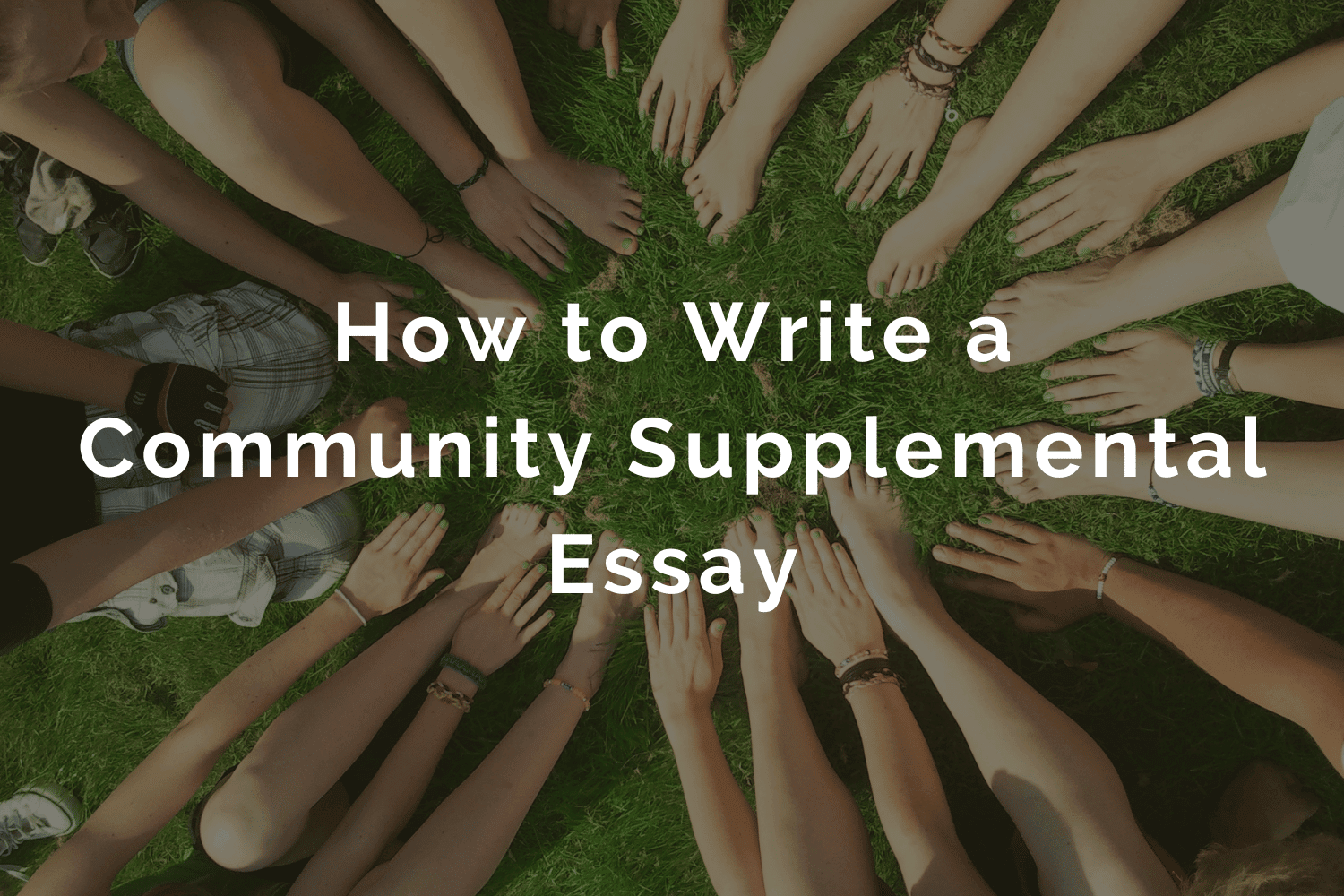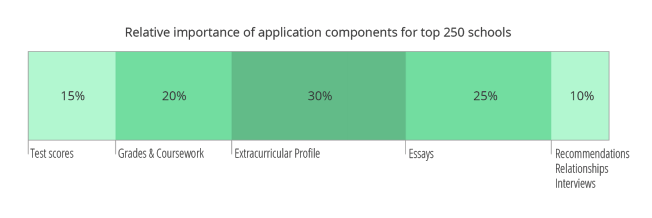- Search All Scholarships
- Exclusive Scholarships
- Easy Scholarships to Apply For
- No Essay Scholarships
- Scholarships for HS Juniors
- Scholarships for HS Seniors
- Scholarships for College Students
- Scholarships for Grad Students
- Scholarships for Women
- Scholarships for Black Students
- Scholarships
- Student Loans
- College Admissions
- Financial Aid
- Scholarship Winners
- Scholarship Providers

Student-centric advice and objective recommendations
Higher education has never been more confusing or expensive. Our goal is to help you navigate the very big decisions related to higher ed with objective information and expert advice. Each piece of content on the site is original, based on extensive research, and reviewed by multiple editors, including a subject matter expert. This ensures that all of our content is up-to-date, useful, accurate, and thorough.
Our reviews and recommendations are based on extensive research, testing, and feedback. We may receive commission from links on our website, but that doesn’t affect our editors’ opinions. Our marketing partners don’t review, approve or endorse our editorial content. It’s accurate to the best of our knowledge when posted. You can find a complete list of our partners here .
Supplemental Essays: How Important Are They?

Cece Gilmore is a Content Writer at Scholarships360. Cece earned her undergraduate degree in Journalism and Mass Communications from Arizona State University. While at ASU, she was the education editor as well as a published staff reporter at Downtown Devil. Cece was also the co-host of her own radio show on Blaze Radio ASU.
Learn about our editorial policies

Bill Jack has over a decade of experience in college admissions and financial aid. Since 2008, he has worked at Colby College, Wesleyan University, University of Maine at Farmington, and Bates College.

Maria Geiger is Director of Content at Scholarships360. She is a former online educational technology instructor and adjunct writing instructor. In addition to education reform, Maria’s interests include viewpoint diversity, blended/flipped learning, digital communication, and integrating media/web tools into the curriculum to better facilitate student engagement. Maria earned both a B.A. and an M.A. in English Literature from Monmouth University, an M. Ed. in Education from Monmouth University, and a Virtual Online Teaching Certificate (VOLT) from the University of Pennsylvania.

Supplemental essays can be the difference between an acceptance to your dream school or a rejection. These essays allow you to “speak” to the admissions readers like nothing else. After you read our article, you will be motivated to send in your very best supplemental essays for each and every college that requires them. Let’s get started!
Purpose of supplemental essays
The purpose of supplemental essays is to provide alternative opportunities for applicants to reveal details about themselves that have not been mentioned in their application. Supplemental essay prompts often ask “why” the applicant decided to apply to a particular school. This is one way to let schools know that you are truly interested and that it is the right fit for you.
How important are supplemental essays?
Supplemental essays are very important because they can tip the scales in your favor! First, consider that every college and university has some kind of admissions requirements. Usually, they decide whether to accept, or not to accept, an applicant based on all of some combination of the following factors:
- AP or IB classes
- SAT or ACT scores
- Recommendation letters
- Supplemental essays
- Extracurriculars
- Demonstrated interest
Typically, universities weigh these factors according to their own formulas to help determine whether or not to accept an applicant. It is completely up to the particular university to determine which factor should carry the most weight. Some schools put considerable weight on supplemental essays in order to get a more holistic sense of “who” an applicant is.
Students are more than GPAs and SATs
Factors such as GPA or SAT scores do not always give admissions officers a good sense of who you are as an applicant. Therefore, supplemental essays provide another means for the admissions officer to get to know you and your interests.
In fact, many colleges have begun to include more fun and creative supplemental essay questions. They do this to get to know their applicants on a more personal and less superficial level. Therefore, it is in your best interest to take supplemental essays seriously and try your best to impress the university you are applying for.
How to do well on a supplemental essay
Writing a good supplemental essay can be the key to admission to a school you really want to attend. Follow the tips and guidelines below and be sure that you are putting your best foot forward!
Do your research!
Supplemental essay prompts usually have something to do with the educational institutions you are applying to. Therefore, it is critical that you complete some focused research prior to answering any supplemental essay.
Research includes looking on the school website and social media channels to find out specific details about the:
- Organizations
Once you have completed adequate research, use this research to your advantage. You should name drop specific details when applicable. These might include mentioning a particular professor or class in your response to demonstrate how much you connect with the school.
Most likely, this will give you a leg up against other applicants who give generic answers. The school will take note that you truly want to attend their institution based upon your knowledge for their niche opportunities.
Check for silly mistakes
It can be so easy to go auto-pilot when responding to supplemental essay prompts.This might sound like a given, but it is important that you check over your work thoroughly before submitting it to a college or university. You can easily check for mistakes by reading your essay out loud or asking a trusted family member or friend to read your essay.
Do not repeat yourself
It is so important that you are not repeating yourself, either within the supplemental essay or within your application as a whole. For example, if your Common App essay details your relationship with playing soccer, do not write about soccer for a supplemental essay!
Being mindful of being repetitive ensures that you can show the most well-rounded version of yourself while highlighting every aspect of your personality and interests. Colleges do not want to read about the same thing over and over! Rather, they want to get a good sense of who their future students might be.
Follow the word count
Most supplemental essays typically have a word count for applicants to follow. Staying within the prescribed word limit ensures that there are no issues with your application. If you go over the word count, there is a chance that a school will stop reading your essay or not even read it in the first place. If your essay is too long, try to take out transition words and look for places where a sentence is not necessary.
Related: How to write 250 and 500 word essays
Be authentic
Being authentic is the absolute most important tip to follow when writing supplemental essays. Schools want to get a sense of who their applicants are, in fact, that is the main reason for supplemental essays! Being true to yourself and your story allows you to highlight personal strengths and quirks. In addition, if you are not sincere with information on your supplemental essays, it can be quite detrimental to your chances of acceptance.
Related: How to write about yourself
What should a good supplemental essay reveal about you?
A good supplemental essay should touch on the following points:
- Provide more information about you
- Demonstrate your interests and expertise
- Show what you will bring to the campus environment
- Set yourself apart from other applicants
Common supplemental essay prompts
“why us” essay.
The most common supplemental essay prompt you will come across is the “Why us?” Universities want to know why they are a good fit for the applicant. Therefore, it is important that you select universities that are the right match for you to begin with. You can find this out by doing adequate research on the school to find out the specific programs and aspects that most align with your interests.
“Why this major?” essay
Sometimes, applicants are asked to declare a major or apply for a specific college within a university. Some supplemental essay prompts ask applicants to describe their interests and future goals when it comes to their intended field of study.
The community impact essay
This prompt asks you to describe how a community or experience has impacted you or how you have impacted your community. Ultimately, this supplemental essay is an opportunity to demonstrate your ability to make a positive impact on your community.
Also see: How to respond to the Common App essay prompts
Final thoughts
We hope that you now understand why supplemental essays are so important! They are often the part of your application that allow you to elaborate on what makes you you! Ultimately, you want to show the best side of yourself to all schools you apply to. By writing fantastic supplemental essays, you are putting your best self forward. A good supplemental essay can be the difference between an acceptance or a rejection letter from your dream college. Therefore, wow them with your very best writing and authenticity!
Start your scholarship search
- Vetted scholarships custom-matched to your profile
- Access exclusive scholarships only available to Scholarships360 members
Scholarships360 Recommended

10 Tips for Successful College Applications

Coalition vs. Common App: What is the difference?

College Application Deadlines 2023-2024: What You Need to Know
Trending now.

How to Convert Your GPA to a 4.0 Scale

PSAT to SAT Score Conversion: Predict Your Score

What Are Public Ivy League Schools?
3 reasons to join scholarships360.
- Automatic entry to our $10,000 No-Essay Scholarship
- Personalized matching to thousands of vetted scholarships
- Quick apply for scholarships exclusive to our platform
By the way...Scholarships360 is 100% free!
College Reality Check
Unlocking the Hidden Power of Supplemental Essays
Forbes has a list of 80+ schools that do not require supplemental essays.
College-bound teens who hate writing essays or believe that essay writing is not their strongest suit rejoice!
By choosing strategically, they can apply to college without writing a single literary word.
Unfortunately, chances are you may have to write several of them if your college list contains selective schools, given that most of them require supplemental essays.
Secondary essays.
College-, school-, or institution-specific essays.
Regardless of the name, these are the same things. They’re all supplemental college essays .
If a college asks for one (or more in most circumstances), you must submit it.
Many college admissions agree that supplemental essays account for about 25% of the weight of your college application as they provide information about you that your GPA, class rank and test scores can’t.
It also allows college admissions officers to see whether or not you know the school you’re applying to.

College Essay vs. Supplemental Essay: What’s the Difference?
A college essay comes in different names.
They include:
- Common App essay
- Coalition App essay
- Application essay
- Admissions essay
- Personal essay
- Personal statement
You can call it any name you like, but a college essay is an entirely different type of written composition from a supplemental essay, though both can help you get into the college of your preference.
It Only Takes One College Essay to Apply to All
A college essay is anywhere from 250 to 650 words or 500 to 650 words.
It all depends on which college application platform you intend to use or the college of your liking accepts — the Common Application has a lower minimum word requirement than the Coalition App (250 vs. 500).
What’s nice about a college essay is that you must write it only once .
The one you include in your college application will reach all the colleges you apply to.
So, in other words, college admissions officers from different institutions will read the same essay, although those who don’t consider it in the application process won’t look at it.
That’s nice — just one essay for all the schools on your college list!
However, including colleges that require supplemental essays on your list changes everything.
Supplementals are Usually Shorter but More Than Just One
As mentioned, supplemental essays are also called school-specific essays.
That’s because they’re exactly that — you write each essay with a particular school in mind.
Compared to personal statements, supplementals are usually shorter , although it’s not uncommon for some colleges to set the maximum word count to 650 or sometimes more.
But then most of them are anywhere from 35 to 250 words long.
There are shorter ones (sometimes just a single word!), which is why they’re called short-answer questions .
Although you usually need fewer words to write a supplemental essay, you often have to write more than just one supplemental essay when applying to a single college.
On average, colleges require two to three institution-specific essays.
Applying to ten postsecondary institutions requiring supplementals could leave you writing anywhere from 20 to 30 college supplemental essays in a single admissions cycle!

Why Supplemental Essays Matter in College Admissions
College admissions officers, especially at competitive schools , want to know applicants in a certain way.
They want to learn not only about your academic accomplishments, personal achievements, unique life experiences, individual strengths, core values, and prospective goals.
They also like to know how those would fit on the campus of the specific school you’re applying to!
Due to this, supplementary essays are college-specific.
Colleges Want to Know How You’ll Fit on Campus
Your college essay alone may not reveal how you would make a perfect addition to a specific campus.
Again, every college you send your Common App or Coalition App to will be able to read it, which is why it’s crucial for your personal statement to focus on you as an individual and a learner, not the institution you like.
On the other hand, a supplemental essay should focus on what makes you a good fit for the college.
If you may, think of a writing supplement as an opportunity to convince college officers that you are a better choice than another applicant with the same academic profile as yours.
Show that your positive traits, hobbies, interests, and personality all fit on campus.
Talking about your weaknesses is fine, too, although it would be a great idea to point out you are working on them and how attending the college you are applying to can turn them into your strengths.
Of course, you won’t be able to write about how you’ll fit on campus without knowing the college.
Colleges Also Want to Know How Much You Know Them
College admissions officers want to know what you can add to the campus community.
Similarly, they want to know how the school can meet your academic and career goals .
Supplemental essays are an opportunity for you to discuss both and prove to your top-choice college that you are applying to the right school and also show that you are the right applicant .
For this, you must know what sort of academic program can make your professional dream happen.
It’s vital to know, too, which type of campus community can make you a well-rounded student and equip you with the skills necessary to succeed beyond college.
You can tailor your college application to fit the school’s needs through supplementals.
They allow you to demonstrate how you will fit with its culture, values, and mission.
Ultimately, they let you express why sending you an acceptance letter is worth it.

Increasing Your Admissions Chances Through Supplementals
Because supplemental college essays are major role players in the admissions process where they are required, I cannot stress enough the importance of giving your best when writing them.
What you say in them can spell the difference between an acceptance and a rejection.
College application is stressful , and writing various supplementals can make it even more nerve-racking.
But avoid panicking.
It’s of utmost importance for you to take a deep breath, compose yourself, and then pay attention to blowing the minds of college admissions officers with your supplemental essays.
That can be a challenge , but totally doable.
The secret is to know the steps necessary to nail those supplemental essays.
- Research. Before writing a supplemental essay, ensure you have researched the college or university enough. Study its values and culture. Examine its alumni members. Look into its programs and facilities.
- Introspect. It’s not enough that you know about the college — it’s also a must to explore why you intend to go to it. Determine what you want academically, socially, and professionally.
- Stick to the prompt. Most of the time, institutions allow applicants to pick from various supplemental essay prompts. Choose well and ensure that you talk about what your selection asks of you.
- Be genuine. No matter how tempting it is to exaggerate your achievements and capabilities to increase your admissions chances, don’t! Showcase your true self and write what you believe the college needs to know.
- Write well. Besides your writing supplement’s content, your writing skill also counts. Mind your grammar, punctuation, and sentence structures. Remember to draft for flow and organization.
- Proofread. Misspelled words, missing punctuation marks, grammatical slip-ups, etc. — they can take away from a well-thought-out and well-written supplemental college essay.
- Get feedback. Before college admissions officers read your supplementals, ask others like your parents, teachers, or mentors to check them out and provide suggestions.
Supplemental essays allow your application to stand out, so grab the opportunity in every way you can!

Independent Education Consultant, Editor-in-chief. I have a graduate degree in Electrical Engineering and training in College Counseling. Member of American School Counselor Association (ASCA).
Similar Posts

Can You Pay Someone to Write College Essay?

How to Answer Short-Answer Questions in College Application

Master the Art of Introductions: How to Start a Compelling Essay About Yourself

How to Write Best College Transfer Essay: Secrets, Tips and Tricks

10 Best Common App Essay Ideas

AI and College Admissions essays: Cheating, Plagiarism, Inequality and Other Issues
- High School
- College Search
- College Admissions
- Financial Aid
- College Life

How to Tackle College-Specific Supplemental Essays
This article discusses college-specific supplemental essays. You can read our guide to acing the Common Application personal essay here!
If you’ve put the finishing touches on your Common Application personal essay, you might be looking ahead to supplements. You also might be absolutely dreading writing them, because why do you have to write so many more essays?
Good news: they don’t have to be so hard! Supplemental essays are typically short in length requirement—you might encounter prompts with word limits ranging from 150 to 400. Many schools require them, and many don’t, so you have some flexibility as to whether or not you’ll be writing extra.
Colleges often use their supplemental essays as a way to find out more about you beyond your grades, scores, and activity list. They are also able to gauge your intent—what you plan to study and why, for instance. So, these essays are your chance to really bring your A-game. Below, find our tips on how.
Make sure your supplement reveals something about you.
Many prompts will ask you to describe an extracurricular activity in which you were involved. It’s easy to pick the most impressive thing you’ve accomplished or the club in which you had the highest leadership position, but make sure that your descriptions also tell us about you! Pick activities that highlight your best qualities. For example, being part of an art club might be something you view as insignificant, but you can actually use that to showcase your organization, attention to detail, and observational skills.
When discussing your activities, write with lively detail.
This shouldn’t read like a resume or a LinkedIn profile—don’t simply list your duties. Paint a vivid picture of a day in your club or sport. If you were involved with the debate team, don’t just tell us that you were responsible for researching and writing arguments—show us what that looked like. Were you up late, scanning sources? What did it feel like to debate your opponent? How does it feel to win?
Try to highlight something that you haven’t yet discussed.
If you already talked about the summer program that inspired you to choose your major in a different essay, now is the time to spice it up. Different parts of your application will showcase different parts of your personality. This means, too, that you don’t always have to discuss an impressive activity. Sometimes, there will be questions about what your favorite movie or book is. Use these to flesh out the image of yourself as a real human with real interests, not just another applicant.
If a school asks you why you want to go there, do your research.
“The programs and opportunities offered at X school are so intriguing to me!” is far too vague—be specific. Admissions officers are seeking students who are passionate about the school. They want to know that you want to be at X school, and they want to know exactly how you’re going to make use of your time there. Take it beyond major and career interest, too—if your school is strong in the health sciences and you’re hoping to pursue a pre-medical track, don’t just say “X school is amazing at health.” Look up professors who lecture in your department. Have they done any research that you’re interested in? Mention that! Or maybe you’re a writer, and one of the English professors wrote a book you love—talk about it. Writing about specific coursework or aspects of the curriculum that appeal to you can be quite effective, too; tell them how excited you’d be to explore the liberal arts through the core curriculum.
We also recommend researching and mentioning school-specific opportunities that you can’t find elsewhere. If the school offers a unique semester-abroad program, for instance, discuss how you wouldn’t be able to pursue that dream at a different college. And finally, talking about campus life can be the icing on the cake. Mention a weird tradition in which you’d love to be involved; describe how you can’t wait to cheer on a sports team and experience that game-day environment.
Approach personalization carefully.
It can be tempting to write one short essay about an extracurricular activity, throw in a sentence about how you’re “excited to pursue X activity at X school”, and then swap out different school names for different applications. But we strongly advise against this. Why? It might be a time-saver, but your lack of effort will show through. You’re much better off doing a bit of research than lazily slapping on one half-hearted sentence. Plus, doing this means you run the risk of accidentally sending an essay with another school’s name in it—if Penn State receives your Pitt essay, you’re definitely not getting in.
Most of all, have fun with it.
Of course, this is much easier said than done. Writing countless essays doesn’t sound fun. But it can be a way to dive deeper, to explore what you’re interested in pursuing at different colleges. It can also be an opportunity to figure out what values and qualities you appreciate most about yourself. Take these supplements as a chance to brag a little. Celebrate yourself and your hard work—you deserve it!
Author: Julianna Chen
Julianna Chen is currently in her second year at Emory University, where she studies creative writing and Chinese. She is the managing editor of Lithium Magazine and a contributing writer for Adolescent.net. When not writing, she is watching a movie or eating a stroopwafel, sometimes both at the same time.
More Articles By Niche
The FAFSA has undergone several changes this year, causing unexpected delays for both students and colleges.
Here are my seven tips to the early high schooler in preparing for a strong college application.
We spoke with staff and faculty at Interlochen Arts Academy and Interlochen Arts Camp to get their best tips on overcoming perfectionism, developing confidence, and showcasing your artistic gifts.
Supplemental Essays Guide: How to Write, Tips & Examples
.jpg)
Reviewed by:
Former Admissions Committee Member, Columbia University
Reviewed: 9/11/23
Writing stand-out supplemental essays may be your ticket into your dream school. Follow along for our complete guide on writing perfect supplemental essays for college.

If you’re working on supplemental essays, you’ve already spent countless hours perfecting your application. However, even the perfect application must be followed by stellar supplementals to get you into your dream school. That’s right, supplementals are a highly important piece of the application process - so how can you perfect yours?
In this complete guide, we’ll cover everything you need to know about writing excellent supplemental essays, including examples from well-written essays , tips for common essay prompts, and each possible length. To top it all off, we’ve also included answers to the most frequently asked questions about writing stand-out supplemental essays.
Let’s get started!
What are Supplemental Essays?
Supplemental essays are additional writing samples that you submit along with the rest of your college application. Many high-ranking schools ask for these essays, as they are intended to be more specific than your personal statement. It’s a chance for you to further demonstrate why you are a good fit for the school you’re applying to.
How Important are Supplemental Essays?

In short, supplemental essays are an extremely valuable part of your application. Your application allows schools to see the base of your work ethic through numbers (grades, extracurriculars, awards, and more), but it doesn’t give any indication of your personality.
These essays are your first opportunity to give your university an idea of who you are and what you are passionate about.
Excellent essays can tip the scales in your favor, especially for highly competitive schools where most candidates have excellent grades. An in-depth, well-written essay can set your application apart from others.
What are Colleges Looking For in Supplemental Essays?
In supplemental essays, colleges look for honesty, specificity, and the ability to answer the prompt accurately and succinctly. We will look at several common prompts that colleges often use:
- “Why This Major?”
- Community/diversity
- Extracurricular
Using these prompts helps college admissions get a better idea of who you are as an applicant.
How to Write Different Supplemental Essay Prompts
Every college has a unique set of prompts they distribute to their applicants each year. However, most prompts follow core formats. Here are some of the most common types of supplemental essays and how to write them.
The “Why Us?” Essay
The “Why Us?” or "Why This School?” essay is one of the most common prompts in circulation. Top schools such as Brown, Columbia, and Cornell have all been known to ask applicants to answer this prompt as part of their application. So, how do you write the “Why Us?” essay? Let’s talk about it.
When a college asks you why you want to go there, the admissions committee wants to know a few things:
- The specific things about this school that appeal to you (have you done your research?)
- How you will contribute to this school’s college life
- How attending this school will help you achieve short and long-term goals
With this prompt, avoid listing reasons you want to go to the school unless you are directly instructed to do so. This is an opportunity to show the admissions committee how much their school matters to you, what programs and courses most interest you, and how the school will help you develop your passion and achieve your goals.
You should do thorough research on the school and consider what sets it apart from other colleges on your list . Avoid providing general reasons that could be said about any other college.
Writing this essay is your chance to showcase why you are passionate about attending this specific school and why it matters to you. Finally, conclude your essay by explaining how and why attending this school will help your long-term goals.
“Why Us?” Essay Sample from Columbia University:
“Computer science is at the core of my academic passions and my life ambitions. What I value in life is being around brilliant technologists. At Columbia, I have worked with and befriended the most driven and gifted programmers I’ve ever met. In January, I formed a team with three Columbia freshmen for MIT’s annual strategy-game-playing artificial intelligence competition. Ben, Ryan, Koh and I spent the month reviewing matches, debating approaches and tweaking our models. More than once we coded through the night. Their caliber was clear in the subtle insights that their multi-disciplinary backgrounds gave them and they gave me something to aspire to.
I have many interests that lie outside of my intended major but that I want to continue to pursue, and Columbia provides an environment for those diverse passions. Recently, while at a Columbia math club meeting with Ben, I ran into a political science major, Mathieu. He was elated to point out the insights that a love of math granted him in his courses and his conviction encouraged me to explore the peculiar intersection of the two fields.
I love teachers who love to teach. At Columbia, I’ve seen faculty who have a love for what they do and who care about students. While touring, I sat in on a quantum mechanics lecture. Professor Norman Christ strode into the room at eight on-the-dot and jumped into a discussion of WKB complex value approximation. For three straight hours, he guided us through the intricate world of QM without any notes. His enthusiasm brightened that drizzling Monday morning. That I could follow the lecture at all is a testament to his lucid explanations and extraordinary knowledge. When I came to him with questions afterward, he helped me truly understand a topic that initially felt years out of reach.”
Why this is a successful essay: In this essay , the writer starts by talking about their major and how Columbia provides an excellent program. They continue to add how they could positively impact Columbia if accepted. Take note of how the writer lists their key topic at the beginning of each paragraph and then connects Columbia to each topic.
This student also mentioned that they enjoyed a Columbia professor's lecture, which is an excellent way of showing their deep interest in the school. Showing in your essay that you are passionate about the program and that you’ve done your research can be a point in your favor.
The “Why This Major?” Essay
Although this prompt is very similar to the “Why Us?” essay, your answer should focus entirely on why you’re passionate about your degree. Think of this essay as an opportunity to tell the story of how you developed your passion. Try creating a timeline before you start writing to help organize your ideas. It should look something like this:
1. The first time I thought about pursuing this major was: __________________
2. I started to get more serious about pursuing this passion when:___________________
3. I’m now applying to this program so that in the future, I can: ___________________
Creating a timeline can help you easily convey how important your major is to you and the journey you’ve taken to build upon your passion.
You can also include, if it applies, what specific things about your school’s program that drew you to your current selection. However, the main focus of this essay should be how you developed your passion for the subject and what you want to do in this field later on.
"Why This Major" Essay Sample from Yale:
“Literature and anthropology are telescopes into the past; philosophy, a prism into the mind. I want to ask the hard questions: Do I have free will? Is meaning lost in translation? Is there eternal truth? What is an “I”? Am I my mind, body or something more? Literature is an empathetic account of the past, anthropology a scientific documentation of human lives. I want to find commonality in lives separated by time and space, find meaning within them, partake in the collective memory of humanity, and interrogate what it means to be human.”
Why this essay works:
In this short essay example from a Literature and Anthropology student from Yale, the student gets straight to the point. Demonstrating the questions they have that they hope to answer throughout their education is an excellent way to show that you’ve given your major a lot of thought.
They’ve also captured the true essence of their major in the last sentence by stating they want to “partake in the collective memory of humanity” and “interrogate what it means to be human.” Whatever major you choose, write honestly about what calls you to the subject and demonstrate that you have a thorough understanding of the genre of material you’ll be studying.
The Adversity Essay
As one of the most challenging essay prompts, the adversity essay presents students with the uncomfortable task of recalling a difficult life experience and explaining how they overcame it.
For some, choosing an instance of adversity can be the most challenging part of this prompt. Keep in mind that adversity looks different to everyone. Your story doesn’t have to be overly tragic to write a good adversity essay; you simply need to approach your issue from a place of growth.
One of the main mistakes applicants make when writing the adversity essay is thinking that their adversity story needs to be overly tragic or complex. Instead of focusing on the actual adversity, your essay should mainly focus on the steps you took to overcome the adversity and learn valuable lessons moving forward.
If a school asks you to write an adversity essay, the admissions committee wants to know how you handle a challenge. If you buckle under pressure, you may not be able to handle the intensity of a heavy workload.
Therefore, schools want to know that you are capable of facing challenges head-on and have the capacity to learn from your mistakes.
Adversity Essay Sample from Harvard University:
“When I was a freshman in high school, I didn't care about school or my education. I couldn't see a future where it mattered whether I knew how to say 'how are you' in Spanish or how to use the Pythagorean theorem. Because I couldn't see the point of these classes, I found myself disconnected from the high school experience as a whole, which resulted in low grades. My parents expressed their disappointment in me, but I still couldn't bring myself to care; I was feeling disconnected from my family, too.
I didn't realize it at the time, but I was depressed. I stopped spending time with my friends and stopped enjoying the things I used to enjoy. I was feeling hopeless. How could I get through three and a half more years of high school if I couldn't even get through a semester? I couldn't stand the thought of feeling this way for so long – at least it felt so long at the time.
After a few failed tests, one of my teachers approached me after class one day. She said she also noticed a difference in my demeanor in the last few weeks and asked if I was okay. At that moment, I realized that no one had asked me that in a long time. I didn't feel okay, so I told her that. She asked me what was wrong, and I told her that I was feeling disconnected from school and classes and just about everything at that point.
My teacher suggested I visit my guidance counselor. So the next day, during study hall, I got a pass to visit with my guidance counselor and told her I was feeling disconnected from classes and school. She asked me what my interests were and suggested that I take an elective like art or music or a vocational tech class like culinary arts or computer coding. I told her that I wasn't sure what I was interested in at this point and she told me to take a couple of classes to see what I like. At her persistence, I signed up for art and computer coding.
It turns out art was not my thing. But it also turns out that computer coding is my thing, and I am not sure I would have realized that had I not gone to see my guidance counselor at my teacher's recommendation. After taking computer coding and other similar classes, I had something to look forward to during school. So even when I still dreaded taking Spanish and Geometry, I knew I could look forward to an enjoyable class later in the day. Having something to look forward to really helped me raise my grades because I started caring about my future and the possibility of applying for college to study computer science.
The best thing that I took away from this experience is that I can't always control what happens to me, especially as a minor, but I can control how I handle things. In full transparency: there were still bad days and bad grades, but by taking action and adding a couple of classes into my schedule that I felt passionate about, I started feeling connected to school again. From there, my overall experience with school – and life in general – improved 100%."
Why this is a good essay: In this essay , the applicant focuses on personal development. They begin by addressing their low grades and poor mental health at a younger age and how the experience affected them. The main focus of the essay, however, is how they found the motivation to get back on track and improve their grades.
The student has taken this essay opportunity to not only explain the poor grades that Harvard will see from freshman year but has also proven that they have the ability to pull through when times get tough. Remember, the adversity essay should focus mainly on how you’ve learned and grown from a negative experience rather than focusing on the experience itself.
Community/Diversity Essay
Essay prompts that ask about your experiences in your community help colleges to better understand your unique perspective. Many schools aim to cultivate a diverse environment to enrich the student experience and make sure students from all different backgrounds feel welcome on campus.
Diversity can relate to your ethnicity, culture, birthplace, health, socioeconomic status, interests, talents, values, and many other things. There is no “correct experience” when it comes to choosing a topic here. In this essay, you have the opportunity to celebrate your unique perspective.
Think about experiences that are important to your identity. For example, you could write about your hometown, a family tradition, a community event, a generational story, or whatever feels most authentic to you.
Keep this essay authentic; avoid fabricating a story or using someone else's experience. This story needs to come completely from you and let your school get some more information on who you are.
Community/Diversity Essay Sample from Duke University:
“The pitter patter of droplets, the sweet smell that permeates throughout the air, the dark grey clouds that fill the sky, shielding me from the otherwise intense gaze of the sun, create a landscape unparalleled by any natural beauty. I have gazed upon the towering cliffs of Yosemite, stood next to Niagara Falls as the water roars, succumbing to the power of gravity, and seen the beaches of Mexico basked in moonlight, yet none of these wonders compares to the simple beauty of an Arizona rainstorm. To me, our rain represents more than humidity and darkness; its rarity gives it beauty. The uncertainty of when the next day of rain will come compels me to slow down, and enjoy the moment.
Out of the three realms of time; past, present, and future, the present is the only one we can experience, and I take advantage of every moment I have. When I pause my running to enjoy a sunset that dazzles the sky with brilliant colors of purple and orange, when I touch my brush to a canvas and focus on my movements in the present, when I drive home after a long day of improving our robot, and decide to drive around my neighborhood to finish “Garota de Ipanema”, which just popped up from my playlist of 700 songs, I am taking advantage of the moment.
So next time it rains, step outside. Close your eyes. Hear the symphony of millions of water droplets. And enjoy the moment.”
Why this is a successful essay: This essay is an excellent example of pulling a unique experience from your life and expressing its importance. The applicant tells a compelling story about their unique perspective on rain in Arizona and does an excellent job of expressing how special the seemingly mundane event is to them.
The language used here is visually descriptive, which makes the reader feel as if we are experiencing the event with the writer. This is an excellent way to get the admissions committee to feel connected to your story and get a better understanding of who you are and what you enjoy doing in life.
The Extracurricular Essay
Many schools are interested in how you spend your time outside of the classroom. Extracurricular essays are quite common as supplemental essays, although students often struggle with how to make an entire essay out of their extracurricular activities. That’s why it’s important to brainstorm and create a story.
Think of a problem that arose while you were participating in one of your extracurricular activities, such as:
- Your sports team lost an important player
- You were injured during a dance recital
- Your music group needed funding
- Your local soup kitchen was at risk of being shut down, etc.
The problem you choose can be big or small as long as it lends itself to a story. Think about the problem and how you took steps to solve it with your team or other members of your community.
Use your extracurricular essay to show how your passion and motivation extend beyond the classroom. You can choose any activity to write about, as long as it was not during regular school hours or related to a specific course.
Extracurricular Essay Sample from Yale:
“ Haunted romanticism, ravaged gaze, desperation bordering on lunacy, Saturn Devouring His Son first caught my attention as a bored nine-year-old wandering around a museum, and once again as a high-school student, after catching a glimpse of it in a textbook.
Because after looking at angelic frescos after more Church frescos, I could not stop myself from flipping back to the tiny printing of this unholy piece. I sought to discover the story behind it—what caused this artist to create something so raw and naked, in the age of staid royal family portraits?
I became immersed in unraveling each bit of the story, how Goya had long transitioned from a royal painter, to a harsh, but veiled critic of society, the desolation that occurred during the French occupation of Spain, the corruption of Charles IV— who was really only a puppet ruler to Godoy. I learned how kingdoms rose and fell—and rose again, how art is unafraid to capture the seditious attitudes of the common people, and how it has endured to teach us of past mistakes.
I fell in love with dissecting the messages from the past, and discovering how we still have not listened to them.”
Why this essay is successful:
The prompt for this Yale extracurricular essay was “Write about something that you love to do,” and the writer has certainly delivered. Here, the writer goes into detail about why they enjoy going to art museums outside of school. They’ve kept their essay focused on the meanings behind the paintings, giving the reader a deeper understanding of not only what fascinates them - but why it does.
The real key to an extracurricular essay is showing your passions outside of school. There is no right answer; you should simply focus on what interests you and explain why. Try to make the reader feel as if they are there with you. Think about the smells, the sights, and the feelings that surround your extracurricular interest and include them in your essay.
College Supplemental Essay Length

All of the essay types above come in different lengths. Some essays will ask only 150 words or less, while some have no word limit at all. Here, we’ll go over how to adjust your writing depending on your word count.
Short Essay

There is a broad misconception that writing a short essay is “less work,” which we are unfortunately here to squash. Writing shorter-form essays (150 to 500 words) can be more challenging because you have less room to make your point, and your writing must be concise.
To write an excellent short-form essay, start by brainstorming your ideas and move on to writing once you have a solid idea of the main points you want to include. Avoid fluff, repeating the question, reciting your resume, and run-on sentences. The best short essays are honest and to the point.
If your essay is too long when you’ve finished writing, go through each sentence and ask yourself: “Could I tell this story without this sentence?” If yes, cut it completely. If you answered no, find ways to subtract unnecessary words. Having a friend help you edit is a great way to find out which parts are making the text longer without lending anything to the story.
Medium Essay

A medium essay is a sweet spot. Typically, a length of one to three pages flows easily and allows the writer to include all necessary information without repeating themselves or taking anything away.
Because of this, make sure not to go over or under the word count. Most students do not struggle to keep their writing within these parameters, so it’s important to respect them.
Although you have more room in a medium-length essay, your writing should still be concise and flow well without including excess information. It’s always a good idea to have a teacher, friend, or family member look over your story.
Make sure that when they edit, they are looking for things like grammatical errors, run-on sentences, and unnecessary information. They shouldn’t take too much out of your essay because you don’t want the voice of the essay to change.
Long Essay

When tasked with writing a long essay (three pages or more), it can be challenging to continuously provide fresh information and avoid repetition. However, repetition and dragging sentences is the main thing you’ll want to avoid in a long-form essay. To do this, you should rely heavily on planning and your thesis statement.
Your thesis statement sets up your article, allowing you to break the information into parts and tackle each step individually. Brainstorming before you start writing is critical as it ensures you have enough relevant information to fill out the full length of your paper.
How to Write School-Specific Supplemental Essays?
It’s a good idea to tailor your supplemental essays to match the expectations of the school you’re applying to. Here are some guides on how to write outstanding essays for specific schools:
- How to Write the Harvard Supplemental Essays
- How to Write the Vanderbilt Supplemental Essays
- How to Write the University of Michigan Supplemental Essays
- How to Write the Duke Supplemental Essays
- How to Write the Princeton Supplemental Essays
- How to Write the Northwestern University Supplemental Essays
- How to Write the UPenn Supplemental Essays
- How to Write the University of Washington Supplemental Essays
- How to Write the Boston College Supplemental Essays
- How to Write the Cornell Supplemental Essays
- How to Write the Bowdoin Supplemental Essays
- How to Write the Pepperdine Supplemental Essays
These guides will help you write stellar essays!
FAQs: Supplemental Essays
Here are our answers to some frequently asked questions about supplemental essays.
1. Do Colleges Care About Supplemental Essays?
Yes, colleges care about supplemental essays. Your writing gives colleges extra insight into who you are as a person beyond your grades. Strong essays can give you an advantage in your application to many different schools.
2. What to Include in Supplemental Essays?
Stick to the prompt. Your response should approach each aspect of the prompt while providing genuine information about your life experience.
Each essay prompt is different, but admissions committees always love to hear a good story. Use descriptive yet concise language to get your points across while transporting the reader into your world.
3. When Should I Start My Supplemental Essays?
You should start planning your essays as soon as you receive the prompts for each. Once you’re confident in your plan, begin writing your essay as soon as you can to give yourself plenty of time to edit before submitting.
4. Are Supplemental Essays Hard?
For students who are not strong writers, it can be challenging to get started on your essays. However, the most important part of your essay is to remain genuine, tell your story, and be concise.
5. How Do I Start Writing My Supplemental Essay?
Before you start writing, brainstorm and create a solid plan for what you want to include. This will help you write with ease and remain on track while you’re writing your paper. You can also look at good essay examples for inspiration.
6. Where Do You Submit Supplemental Essays?
If using the Common Application, you can submit your essays in the Writing Supplements section. Generally, you will submit your essays along with the rest of your application.
Final Thoughts
Your supplemental essays are an important part of your application and should be given plenty of time and attention. No matter what essay prompts you are given, ensure that you are consistently speaking from the heart and telling a compelling story.
Keep in mind that your experiences are what make you unique, and you do not have to exaggerate or fabricate anything to craft an excellent supplemental essay.
If you are still struggling with writing compelling essays, you can always seek professional help to get assistance with writing, editing, brainstorming, and overall crafting stellar supplementals.
Good luck with your essays!
Access 190+ sample college essays here
Get A Free Consultation
You may also like.

Stanford vs. Harvard: Which One Is Right for You?

Do Colleges Look at Middle School Grades?

Add Project Key Words

Succeeding With Your College Supplemental Essays: Everything You Need to Know
Padya Paramita
May 25, 2021
College applicants often underestimate the importance of supplemental essays and mistakenly put them off until the last minute. However, you should know that they make up a crucial component of your application. Different colleges have various characteristics that they look for in incoming students and supplemental essays are often what they use to determine a good fit. So, don’t underestimate the prompts for college supplemental essays that await you. To help guide you through how to navigate these essays, I’ve outlined why they’re important, the difference between personal statement and supplemental essays, and the categories of common examples of schools that use them, and tips for students to maximize their chance of receiving an acceptance letter.
Why are College Supplemental Essays Important?
College supplemental essays matter because top universities and colleges care a lot about the idea of “fit”. Fit indicates whether you are the kind of student that will work well in a particular college community. Different schools have different characters, different personality types that they’re looking for, different kinds of ways they’re involved in certain activities. The most important portion for a school to know if you are or aren’t a fit for their community are your supplemental essays. Responding to the questions carefully and making sure you’re answering what they’re asking and showing your personality through those supplements can really make a difference in convincing a top school that you’re a right fit for them.
Factors such as academics and test scores are just the foundation of your profile. This is why they consider fit—are you the right kind of student for them or could they picture you more at a different university? Therefore you need to use college supplemental essays to convince them that you’ll take advantage of their resources and that you’re the kind of student they want. College admissions are increasingly competitive, and it’s not just about being perfect. Fit can outweigh your test scores and grades—of course, those are important too—but it’s also important that you address how much you fit the school.
Personal Statement vs Supplemental Essays
When it comes to the personal statement, it doesn’t matter how much of the prompt you address. In the Common App , for example, the last prompt says that you can write an essay on a topic of your choice. The prompts themselves give you indications that the personal statement is looking for a story about you, something with an emotional arc, a transformation in you, or a big learning moment for you.
The college supplemental essays on the other hand can range dramatically from personal writing to academic writing or analytic writing. Some supplements ask you to be very specific about your impact through a certain extracurricular or specific research that you’ve done. Unlike in the personal statement, you don’t need to tell a story that shows your personality in some way. Instead, you can be focused on providing the concrete information that they’re looking for. One clue to that is how long is the supplemental essay that you’re writing. Some supplemental essays are relatively short. Some of them have prompts where they only give you 35 words to respond, or 200 characters, which is much shorter compared to the personal statement.
In asking for short essays, colleges just want specificity. They just want creative, unique answers different from what other students have written. But they don’t need you to tell the story the same way as the personal statement. Then, on the flip side, if you’re dealing with a longer supplemental essay asking you to expand on a longer extracurricular activity, for example, you are going to have to be specific on your experiences and what you’ve done, and why you’ve done it. So, your personality should still come through in your college supplemental essays . But many of them are much more specifically focused than the personal statement, in which it’s really fine to tell any story close to you, whereas for the supplements you need to look closely at the kind of additional information they’re looking for about you as an applicant.
No matter what you write for either, you don’t want to repeat yourself. They are called supplemental essays for a reason. They should contain new information and provide a broader picture of you.
Can You Reuse College Supplemental Essays Across Schools?
Yes, but do it carefully! Reusing essays can save you time and energy. If you reuse material, make sure to do it strategically, and make sure what you’re reusing fits the prompt. Students should not force an essay in there that doesn’t really fit just because they already have it written. It is really important that the supplemental essay answer you provide does answer every part of the prompt.
The “why school” prompts for college supplemental essays specifically are phrased in a lot of different ways but are essentially asking you to explain why you’re applying to the school, what resources that school has that fit you, why you’re interested in those things. Those essays can be reused across schools, but all of the specific examples need to change. Schools can tell if the things you’ve provided in the “why school” essay are generic. If it’s relevant to every single school, you’re doing it wrong. If there’s information that’s easily found on the first page of the school’s website you’re doing it wrong. The “why school” essay needs to include information that’s unique to that school. So, write about names of classes, names of professors, names of programs, extracurricular activities, specific things that only exist in that school that you’d take advantage of and why.
Common Supplemental Prompts and How to Answer Them
Why school essays:.
The most common type of college supplemental essays is the “why school” essay. Let’s take a look at how different colleges frame this question this year.
Barnard College: What factors influenced your decision to apply to Barnard College and why do you think the College would be a good match for you? [Max. 300 words]
Tufts University: Which aspects of the Tufts undergraduate experience prompt your application? In short, Why Tufts?’ [100-150 words]
Northwestern University : Other parts of your application give us a sense for how you might contribute to Northwestern. But we also want to consider how Northwestern will contribute to your interests and goals. In 300 words or less, help us understand what aspects of Northwestern appeal most to you, and how you'll make use of specific resources and opportunities here.
For any of these prompts, make sure you’ve conducted your research! Explore the detailed requirements, courses, faculty, and resources available to undergraduates and see how they align with your profile and interests. Emphasize your “demonstrated interest” in the school—drive home that you’re the right fit for this college and vice versa. You might explain how well you understand the mission or educational philosophy of the school or program. You must focus on how one or two particular aspects of the college suit you. Be as specific as possible and make sure that you show your enthusiasm.
Why Major Essays:
Next, we have the “why major” essays. For prompts such as these, you must prioritize clarity and precision when explaining your interest and background that make you a strong candidate for your intended major, as well as detailed knowledge of the school and its programs. Some example essay questions are:
University of Illinois: Please provide an essay that explains why you chose your intended program of study. What interests you the most about this major? Please be specific - those evaluating these essays are highly interested in your response. If Undecided, what areas of study do you look forward to studying in college? [50-500 words]
Bucknell University: Please explain your interest in your first-choice major/undecided status and your second-choice major, should you opt to list one [Max. 250 words]
Start with an idea or a problem that you find most compelling within your intended field to show your unique approach to the discipline. Use your response to explain your academic interest — not your major. Your major should be determined by your interest, instead of your interest by your major. Connect your past experiences and academic activities to your interest. How did your intellectual curiosity develop out of your activities? Identify which major or program would best help you explore your interest before sitting down to write the essay and then explain why.
Essays on Your Activities
Another really common set of college supplemental essays involve asking you to expand on one of your activities, or questions that ask which activity you would pursue for the rest of your life if you could only pick one. Some example prompts are:
Harvard University : Please briefly elaborate on one of your extracurricular activities or work experiences. [Max. 150 words]
Vanderbilt University : Please briefly elaborate on one of your extracurricular activities or work experiences. [200-400 words]
California Institute of Technology : Describe three experiences and/or activities that have helped develop your passion for a possible career in a STEM field. [10-120 words each]
The reason colleges ask these questions is that they want to know the kind of community impact you’ve made—have you affected the people around you? What kind of impact have you had on your community? And impact isn’t only about the number of people you’ve reached. It’s about how much you’ve affected certain people and which kind of people you’ve connected with and why.
The bigger the scale of impact the more impressive it is. Not only should you write about an involvement that appears on your activities list, but you should choose one that appears high up since it needs to be an activity that looks really important to you. The best extracurriculars cannot be explained fully in the small amount of space they give you in your activities list description. 150 characters including spaces is hardly enough to explain the impact you have had in your most important extracurricular. Use your response to expand on what kind of leadership you demonstrated in the activity. If it’s something new you started, expound on why are you’re so motivated to spend time on it and what relationships you built along the way.
Identity Essays
Some supplemental essay prompts want to hear more about your background—who you are, where you come from, what unique perspectives you can bring to the college. The key to this essay is to capture a part of you that you haven’t necessarily talked about in your personal statement. Example prompts include:
University of Washington: Our families and communities often define us and our individual worlds. Community might refer to your cultural group, extended family, religious group, neighborhood or school, sports team or club, co-workers, etc. Describe the world you come from and how you, as a product of it, might add to the diversity of the UW. [Max. 300 words]
University of North Carolina—Chapel Hill: Expand on an aspect of your identity (for example, your religion, culture, race, sexual or gender identity, affinity group, etc.). How has this aspect of your identity shaped your life experiences thus far? [Max. 250 words]
University of Pennsylvania : At Penn, learning and growth happen outside of the classroom, too. How will you explore the community at Penn? Consider how this community will help shape your perspective and identity, and how your identity and perspective will help shape this community. [150-200 words]
Colleges want to gauge how you would add to the diversity of their campus. Remember, the word “diversity” doesn’t only include factors that are out of your control such as race or ethnicity. If you want to talk about your cultural or religious community - since your familial background is one of the topics that many of these college supplemental essays have primarily encouraged—that’s great! But if you believe it wouldn’t make you stand out, think about a community that you’ve found thanks to an extracurricular activity or work experience. No matter what community you choose, you shouldn’t dedicate all of your words to your explanation of the premise.
This essay should be about you—think about how your perspective has been shaped by the community and vice versa. How would you be different had this community not existed? Make sure you haven’t elaborated on this part of your profile elsewhere in your application. This essay is a great way of providing more context on something meaningful that admissions officers wouldn’t easily be able to guess.
College supplemental essays can be easy to write off. Don’t underestimate them! One of the hardest parts of your college applications is not the writing itself, but coming up with good ideas to answer the questions. They often require a lot of thinking and trying to come up with the best examples from your life and you don’t want to rush that. So take your time and consider the various prompts before taking the leap and writing them. Good luck!
Tags : college supplemental essays , supplemental essay tips , supplemental essays , college essays , how to write supplemental essays
Schedule a free consultation
to find out how we can help you get accepted.
- Free Consultation
- The Spark Advantage
- Who We Serve
- About Admissions Consultants
- Testimonials
- College Admissions
- BS/MD Programs
- Private School Admissions
- Transfer Admissions
- Results by Year
- > Applications and Essays
How Important Are Supplemental College Essays?

There are several steps involved in applying to college. You need to have a balanced list, a strong resume, a good personal statement, and a clear application schedule. However, many students forget to devote sufficient time to one of the biggest pieces of their admissions profile: the supplemental essays.
Today, the vast majority of selective schools ask students to write and submit short essays responding to questions particular to that school. The topics can vary quite a bit by school, and they also range a great deal in length. Further, because they usually aren’t released on the Common App until August, students tend to write them while they are busy with senior year.
No wonder, then, that so many students don’t put the same level of time and care into these essays as they do on other parts of their application. But in approaching the school-specific essays in this way, they’re making a huge mistake. These essays are arguably the most important piece of your application outside of your grades and standardized test scores.
So, why do supplemental essays matter so much? And how can you ensure you’re writing ones that your dream schools will love?
Why Are Supplemental Essays So Important?
Imagine you’re interviewing someone for a job or role on your team. For 90% of the process, you have to ask standard questions that you weren’t involved in creating. Because the questions are standard, you frequently receive the same answers. Then, at the end of the interview, you get to ask the potential hire whatever you want. Wouldn’t you care about those answers the most?
That’s exactly the situation in which colleges and universities find themselves with applications. There are many benefits to a standard platform like the Common App, but that approach also means that individual schools don’t have a say in the personal statement questions, how the activities list is arranged, or what personal and demographic questions they can ask. The only place where they have total control is the supplemental essay section, which is why those responses matter so much to them.
In this additional section, colleges get to ask whatever they want. It stands to reason they would only ask questions to which they really, really care about the answers. If it’s clear that someone isn’t taking that section seriously, it may not matter at all what the rest of their profile looks like because admissions readers can tell the student isn’t truly interested in their institution.
How Many of These Essays Will I Have to Write?
The short answer is: it depends on the number of schools to which you apply and how selective they are.
If you’re planning to apply to a range of Ivy League and other highly selective schools, you can expect to write at least a few essays for each. Some, like Stanford and Yale, have more than a dozen questions of varying lengths. As a result, some students end up writing forty or fifty supplemental essays, depending on their particular selection of schools.
That said, a more balanced list in selectivity also generally means a more balanced assortment of supplemental essays. Many colleges outside the top twenty ask for only one or two school-specific essays, and sometimes none. School-specific essays can deter students from applying because they mean additional work beyond the regular Common Application, so universities that want to maximize their applications sometimes avoid them.
However, don’t expect to write none at all! Generally speaking, the norm is to have at least one supplemental essay. Unless you actively try to pick schools with no essay, it’s almost certain that at least some of the schools on your list will ask for additional responses.
What Kinds of Questions Do Colleges Ask?
Of course, the importance of these essays doesn’t mean each school asks completely unique questions. Indeed, because this is the only place they can prompt you to talk about their school specifically, many schools end up asking variations on the same questions.
The most common school-specific essay prompts are variations on:
- Why do you want to attend our school?
- What do you intend to study at our school, and why?
- What has been your most meaningful extracurricular activity?
- If given the opportunity, what new course would you take/teach?
- How will you take advantage of [unique aspect of our school]?
- Tell us about a community of which you are a member.
- What will you bring to our campus community?
- What are your goals for the future?
Additionally, if you are applying to a special program within the university, such as an accelerated medicine or dual-degree program, you can expect to answer even more questions, this time about your interest in, and preparation for, that program. Finally, if the university to which you’re applying has numerous colleges within it, each may have different essays for its particular applicants.
Of course, this is hardly the complete list of school-specific essay topics. In addition to variations on the above questions, many schools also get a little weird. Some schools, like the University of Chicago, take particular pride in having unusual school-specific prompts. Many give students a choice regarding which prompt to answer and use quotations from notable alumni or other school-specific details.
What Should I Say?
Generally, you should hold to the same rules about writing that apply everywhere else in your application: use good grammar and clear prose, be thoughtful and self-aware, incorporate specific examples wherever possible, and pay attention to word or character limits. However, there are some additional pitfalls to avoid when writing school-specific essays.
Be specific about the school.
The subtext of every school-specific essay is: why are you a good fit for our campus? As such, no matter the question, you should find ways to mention specific aspects of the school that you’re excited about, that relate to work you’ve done in the past, and/or to which you have some other connection. If admissions officers can tell you’ve simply copied and pasted an essay from another school into their box, they’re not going to be happy with you.
If an essay asks why you want to attend X University, talk about the specific academic and social things you hope to do there. If it asks what you want to major in, mention classes, labs, professors, and research opportunities. If it asks about a meaningful extracurricular experience, use a specific example to show how you’ll continue that work on campus. If you’re not talking about resources unique to that school, you’re doing it wrong.
Yes, this will take some research! But it will be worth it because at the end of a thoughtfully specific supplementary essay, an admissions officer will be able to picture you on campus, and they’ll like what they see. That’s what gets you into the “Yes” pile.
Show them what matters to you.
Supplemental college essay topics tend to seem either bland (explain why you want to attend our school) or completely weird (would you rather be raised by robots or dinosaurs?). No matter what they ask, though, the central purpose of these essays is to help admissions officers get to know you better. So, when devising an answer, ask yourself: what do I want them to know about me?
Of course, what you’re able to convey will depend on the prompt. But especially for the more out-there questions, take care to really think about what you want to convey about yourself. In practice, admissions officers only have a few minutes with your application, so you need to present your narrative clearly and concisely. If you get to choose your prompt, gravitate toward the one(s) that will allow you to present a new and meaningful part of yourself.
You’ll also want to think about what else is in your application. That is, if your personal statement focuses on a particular experience, you should aim not to return to that topic in a school-specific essay, to avoid boring your reader.
Pay close attention to the prompt.
Because schools do repeat supplementary essay questions, it can be tempting to use the same essay twice. Resist this urge! Colleges think a lot about what to ask in their supplemental essay prompts, and they really want you to take time and care in these answers. Pay close attention to the prompts, and really think about how best to answer.
This goes even for the tiniest of school-specific essays. Some colleges ask for an answer of only thirty or fifty words, some as short as three words! Or they ask for a list of books you’ve read recently, or films you’ve seen. Don’t give these micro-essays any less thought than you do the longer supplementary essays! If colleges are requiring you to answer, it means they care about what you say. Consider how each sentence reflects on you.
In helping students practice for college interviews , we sometimes talk about “the question behind the question.” That is, on its face the question may have been straightforward, but it’s clear there’s something larger the interviewer is getting at. The same goes for supplementary essays. Regardless of how boring or strange the prompt is, ask yourself: what is it they’re really trying to find out through this prompt?
Final Thoughts
Applying to college is a little bit like dating. A potential partner is more likely to be interested in you if you show that you’re genuinely interested in them. That’s why these supplemental essays are so important to the admissions process. They’re your chance to demonstrate that you know what makes the school special and that you’re excited to attend that particular institution.
Good supplementary essays both highlight what a good fit you are for a college and flatter the college by discussing its unique strengths. Remember: by the end of your essay, an admissions officer should feel that you are seriously interested, an excellent applicant, and a great match for the school.
Subscribe to our newsletter for college admissions news
Related articles from the spark admissions blog.

Which Colleges and Universities Will Be Test-Optional for the Class of 2025?
Categories: College Admissions

Which Colleges and Universities Will Be Requiring the SAT or ACT for the Class of 2025?

What Does Test Blind Mean?
Spark admissions has the highest college admissions success rate in the country..
Contact us to learn more about our admissions consulting services.
Schedule Your Free Consultation
How to Write a Supplemental Essay for College Applications
Discover tips for tackling writing supplements, and read a sample essay from a current student.

Getty Images
A supplemental essay gives you an opportunity to tell the admissions committee about something you weren't able to cover in your main essay.
Prospective students are usually aware that they must write an essay as part of the college application process . But they may not know that some schools will ask for additional writing samples such as a supplemental essay.
Avoid These College Application Mistakes
Courtney Rubin and Cole Claybourn July 26, 2023

These writing supplements are usually shorter than the main college essay , but they're no less important, experts say.
"Every word counts in getting your story across," says Deborah Davis, president and founder of Davis Education & Career Consultants LLC, based in Ridgefield, Connecticut.
Some colleges ask for just one supplemental essay while others may require several.
For example, Wake Forest University in North Carolina had six additional questions for prospective students to respond to on its 2020 undergraduate admissions application. However, a couple of the questions asked applicants to write lists – for instance, a personal top 10 list – rather than a full paragraph or two.
Supplemental essay prompts come in all shapes and sizes. In some cases, schools let applicants choose from several options. For instance, the University of North Carolina—Chapel Hill 's fall 2019-20 application included four prompts – such as "What do you hope will change about the place where you live?" – from which prospective students had to select two.
Davis says two of the most common prompts she's seen are "What do you want to major in?" and "Tell us about a favorite activity."
While word counts for supplemental essays vary, they tend to be limited.
Wake Forest has a 150-word limit for each of its supplements, says Tamara Blocker, the university's senior associate dean of admissions. UNC caps applicants' short answer responses at 250 words each, according to the school's website.
In contrast, The Common Application , a platform that allows students to apply to multiple colleges at once, has a suggested 650-word limit for the main essay and 250 words for others.
These types of written responses are more like vignettes or snapshots, rather than full-blown essays, says Stephen Farmer, vice provost for enrollment and undergraduate admissions at UNC.
"I think – I hope, anyway – that students feel the opportunity maybe in the shorter responses to worry less about form and just be a little more open with us," he says.
To help prospective students familiarize themselves with supplemental essays, U.S. News obtained an example from Tufts University in Medford, Massachusetts. Ryan Sheehan from Wallingford, Pennsylvania, wrote the short piece and is a computer science major in the class of 2021.
As part of his application, Sheehan responded to the following prompt: "There is a Quaker saying: 'Let your life speak.' Describe the environment in which you were raised – your family, home, neighborhood, or community – and how it influenced the person you are today."
"As the son of two journalists, I have grown up under a lifelong inquisition: How is your room such a mess? Can you please stop chasing the cat? Will you come down from the tree already? Granted, those are all from this past year, but the point still stands. Like any good journalists, my parents have also always had a propensity for uncovering the truth. On the third night that I had my license, I decided to go to the library to study. Before 15 minutes had passed, I noticed the librarian peering at me through the shelves before quickly averting her eyes and whispering, "He's here," into her phone. Even so, regardless of how many spies they've hired over the years, I have always looked up to my parents immensely. However, I have found my inherited inquisitiveness to be a trait most useful in a place far from the realm of reporting: the robotics lab. After four years of spending almost more time in the lab than at home, I have learned that nothing is more important than asking the right questions. As a programmer, I need to be able to communicate with my builders. Come press time, if I don't interview them properly, our robot will invariably end up as a hunk of unresponsive aluminum. To make a machine, the team must work as one. So although I may be writing source code instead of a breaking story, I am glad I had such nosy parents after all."
Karen Richardson, former dean of undergraduate admissions and enrollment management at Tufts who is now dean of admission at Princeton University in New Jersey, explained why she liked this response: "This is a great essay because, in just 250 words, it shows rather than tells the reader who Ryan is and the things that matter to him. It gives us a sense of his family life and academic interests, and it even shows us he has a sense of humor. As an admissions committee, we learned a lot about Ryan in just one paragraph."
Here are five additional tips from admissions officers to help prospective college students craft strong supplemental essays.
Answer the Question
This may seem obvious, but applicants should carefully read a supplemental essay prompt and make sure they understand what it is asking before answering it, Richardson says.
Prospective students may want to reuse an essay they wrote for another college, but that doesn't always work because supplemental questions tend to be more tailored to an individual institution, she says.
Start With an Outline
Applicants may have their own writing process, but Davis encourages those she works with to create outlines. She says prospective students should brainstorm the personal qualities, skills or experiences they would like to convey in their supplemental essays.

Don't Repeat Yourself
Supplemental essays are a chance for applicants to give more information to an admissions committee to further show why they are a good fit for a school, Davis says. So prospective students should make sure they aren't repeating something that's already been covered in their main essay.
Narrow Your Focus
Probably the biggest mistake applicants make in supplemental essays is choosing a topic that's too big, Farmer says. For example, he says prospective students may attempt to settle a complex political issue in just one paragraph.
"I think it's better to do something small and do it well than to do something big and skate over the surface," he says.
Maintain Your Voice
It's a good idea for applicants to ask another person for editing help, but too much input can be detrimental to an essay, experts say. If lots of people – teachers, parents, peers – read and weigh in on an essay, they can weaken how clearly a student's voice comes through in the writing.
"It's great to read something that sounds like it was written by an 18-year-old and not by a machine," Farmer says, "or by someone who's trying to be prematurely middle-aged."
Searching for a college? Get our complete rankings of Best Colleges.
10 Ways to Discover College Essay Ideas

College Admissions
- How to Write a College Essay
- How to Complete a College Application
- Use the Common App to Apply to College
- College Application Essay Grammar Tips
- See College Essay Examples
Tags: education , colleges , college applications , college admissions , students
2024 Best Colleges

Search for your perfect fit with the U.S. News rankings of colleges and universities.
College Admissions: Get a Step Ahead!
Sign up to receive the latest updates from U.S. News & World Report and our trusted partners and sponsors. By clicking submit, you are agreeing to our Terms and Conditions & Privacy Policy .
Ask an Alum: Making the Most Out of College
You May Also Like
Law schools with the highest lsats.
Ilana Kowarski and Cole Claybourn April 11, 2024

Today NAIA, Tomorrow Title IX?
Lauren Camera April 9, 2024

Grad School Housing Options
Anayat Durrani April 9, 2024

How to Decide if an MBA Is Worth it
Sarah Wood March 27, 2024

What to Wear to a Graduation
LaMont Jones, Jr. March 27, 2024

FAFSA Delays Alarm Families, Colleges
Sarah Wood March 25, 2024

Help Your Teen With the College Decision
Anayat Durrani March 25, 2024

Toward Semiconductor Gender Equity
Alexis McKittrick March 22, 2024

March Madness in the Classroom
Cole Claybourn March 21, 2024

20 Lower-Cost Online Private Colleges
Sarah Wood March 21, 2024

Don’t Sweat the Supp Stuff: Advice for Crafting Your Supplemental Essay

It can feel daunting to choose what to write about in your college application essays. How do you sum up the complex, dynamic individual you are with such limited space?
The short answer: You can’t. But that’s OK.
The goal of your application is not to share every detail of your multifaceted life. Rather, the process allows you to share your story with the admissions committee about what makes you a strong match for the institution. Each piece of the application reveals something about your academic experiences and personal journey that shows us how you might contribute to the Hopkins community.
In some ways, the essays help tie together the rest of the application. They offer space for you to tell stories that represent the most important parts of your identity, which provide context for other components of the application.
Let’s zero in on the supplemental essay .
The supplemental essay portion of the application is specific to each school. Each institution has intentionally crafted a question (or multiple) to help determine whether a student might be a good match. We look for individuals who share Hopkins’ institutional values but will also bring unique experiences and perspectives to the community.
Below is the supplemental essay prompt for students applying for entry to Hopkins in the fall of 2024:
Tell us about an aspect of your identity (e.g., race, gender, sexuality, religion, community, etc.) or a life experience that has shaped you as an individual and how that influenced what you’d like to pursue in college at Hopkins. This can be a future goal or experience that is either academic, extracurricular, or social. (350-word limit) *
Picture your life in college. What does your community look like? Which aspects of your identity are most important for you to develop and nurture?
Now jot down some thoughts about experiences or parts of your identity that have had a significant effect on your life. Maybe it’s a hobby you love, a cultural tradition, or an instance when you discovered something new about yourself.
Once you have a list, think about how each of these will continue to play a role in your college life. Choose one to focus on and spend some time building it out.
Keep in mind this essay is not an exercise in “tell us everything you know about Hopkins.” While it’s important for the admissions committee to see you’ve done your research and understand what Hopkins has to offer, simply listing what you hope to pursue on campus is only half of the puzzle. Be sure to connect the dots by explaining why you wish to pursue those things, and how they’ll help you remain connected to and grow in your identity.
If you’re having trouble coming up with ideas or crafting your essay, reach out to your school counselor or an English teacher. They can help you brainstorm and ensure your piece is answering the prompt in a meaningful way.
Happy writing!
* An important note about the essay: In this essay question, we are looking for how an aspect of your identity or background has contributed to your personal story—your character, values, perspectives, or skills—and how you think it may shape your approach to college as a scholar, leader, or community member.
Please note that the U.S. Supreme Court recently limited the consideration of race in college admissions decisions but specifically permitted consideration of “an applicant’s discussion of how race affected his or her life” so long as the student is “treated based on his or her experiences as an individual—not on the basis of race.” Therefore, any part of your background, including but not limited to your race, may be discussed in your response to this essay if you so choose, but will be considered by the university based solely on how it has affected your life and your experiences as an individual.
Posts you may also be interested in

- Application Tips
Telling Your Story Through Your Application

- College Planning Guide
Application Tips: Applying For Financial Aid

Understanding College Costs & Affordability

Quick Links:
- Majors, Minors & Programs
- Application Deadlines & Requirements
Highly-selective colleges and universities often require supplemental application materials. These materials help further personalize the admissions process so that each college’s admissions committee has the information it needs to select a vibrant and diverse incoming class.
In this article, we will look at 10 supplemental essay prompts from top colleges and universities for the 2022-23 admissions cycle. Once you get a better sense of what to expect from a supplemental essay prompt, we will outline key strategies for answering these prompts, as well as provide practical writing tips to help you get started.
Complimentary Initial Consultation
Fill out this form to book your complimentary initial consultation..
Tell us your name.
What are supplemental essays and are they important?
Each college has its own sets of values and criteria that it looks for in applicants. This is why determining college fit is so important. By carefully researching each school on your college list and having several clear and compelling reasons for wanting to attend, you will increase your overall chances of admission.
One way that colleges gauge whether or not a student would be a good fit for their university is by posing unique supplemental essay prompts. This is why knowing how to write a supplemental essay is so important. Most colleges with supplemental essays will have applicants write the “why this college” essay .
Many selective colleges will require additional supplemental essays as well. In some cases, you will need to prepare an additional five essays per school, so give yourself plenty of time to complete each essay thoughtfully, write multiple drafts, seek out feedback, and proofread. The college application process can feel overwhelming at times, so make sure you brainstorm ways to stay organized during the college application process .
Although the style and content of the actual prompts can vary greatly, at the core these prompts have one thing in common: They are designed to get to know who you are as a person, what your values are, and whether you demonstrate compatibility with the university’s overall mission.
How to write supplemental essays
If you’re looking for supplemental essay tips, you’ve come to the right place! In this section, we will discuss how to write a good supplemental essay, by providing several key application essay tips.
To start, it’s important to remember that the process of writing supplemental essays is similar to the process of writing a successful personal statement . Review components of a strong personal statement to give yourself a fresh perspective before beginning your supplemental essays.
Tips for writing supplemental essays
Supplemental essays are typically pretty brief. This is why it’s important to learn how to write concisely and powerfully. Having very few words to respond does not mean that you should prepare your responses casually or that your responses shouldn’t include lots of details. Rather, approach each word limit creatively. Whether you have 50 words, 200 words, or 500 words, try to use each sentence and detail to your advantage. One of the best ways to do this is to begin by freewriting. Write down everything that comes to mind. Take time to fully flush out your ideas. Then review what you’ve written and see what feels most important. These are the details you will want to highlight in your response.
Some colleges will require three to five additional essays. Maybe even more! This is why it’s important to be prepared and plan ahead. Supplemental essays are an important part of your college application and they require a lot of time and effort. While some supplemental essay prompts may be similar between schools, in general, you want to avoid recycling your college essays. Admissions officers can tell when a student is tweaking an existing essay to fit a prompt.
While some essay prompts are required, others are optional. In general, try to answer each prompt thoughtfully and creatively. After all, it’s no secret that college admissions are highly competitive so it’s great to give your application “an edge” whenever possible. That said, there are times when you should pass on writing an optional essay. If you’re not sure whether or not you should submit an essay for an optional prompt, begin by drafting a response. Then ask yourself if the essay feels forced or genuine. Does the essay convey something new about you that isn’t included in the rest of your application? If the question doesn’t seem to apply to you and you are genuinely unsure what to contribute, you should probably skip that particular essay. After all, no one wants to read an uninspired essay that doesn’t contribute to your overall application.
2022-23 supplemental essay prompts
As mentioned, supplemental essay prompts can vary significantly. Some prompts ask you to respond in 50 words while other prompts ask you to respond in 500 words. Some prompts focus on academics while others ask you to reflect carefully on your cultural upbringing or life philosophies. Still, other prompts will ask you to introduce who you are as a person or discuss something that you enjoy.
Just as supplemental essay prompts vary in style, your responses will also vary. Some prompts will require you to be thoughtful and serious, while other prompts may encourage you to be humorous or creative. It all depends.
Brown University supplemental essay prompt
As a part of the 2022-23 college applications, Brown University requires three supplemental essays. One of the supplemental essay prompts is as follows:
Brown’s culture fosters a community in which students challenge the ideas of others and have their ideas challenged in return, promoting a deeper and clearer understanding of the complex issues confronting society. This active engagement in dialogue is as present outside the classroom as it is in academic spaces. Tell us about a time you were challenged by a perspective that differed from your own. How did you respond? (200-250 words)
Columbia University supplemental essay prompt
As a part of the 2022-23 college applications, Columbia University requires the following supplemental materials: 1 list of 75 words, 1 list of 125 words, 3 essays of 200 words each, and 1 short answer of 35 words. One of their supplemental essay prompts is as follows:
For the following questions, we ask that you list each individual response using commas or semicolons; the items do not have to be numbered or in any specific order. No explanatory text or formatting is needed. (For example, it is not necessary to italicize or underline titles of books or other publications. No author names, subtitles or explanatory remarks are needed.)
List the titles of the books, essays, poetry, short stories or plays you read outside of academic courses that you enjoyed most during secondary/high school. (75 words or fewer)

Meet with our college admissions experts
Dartmouth college supplemental essay prompt.
As a part of the 2022-23 college applications, Dartmouth College requires three supplemental essays. One of the supplemental essay prompts is as follows:
“Be yourself,” Oscar Wilde advised. “Everyone else is taken.” Introduce yourself in 200-250 words.
Duke University supplemental essay prompt
As a part of the 2022-23 college applications, Duke University requires at least one supplemental essay, with the option to submit an additional two supplemental essays. One of the optional supplemental essay prompts is as follows:
What has been your best academic experience in the last two years, and what made it so good?
Emory University supplemental essay prompt
As a part of the 2022-23 college applications, Emory University requires two supplemental essays. One of the supplemental essay prompts is as follows:
Emory If you could witness a historic event (past, present or future) first-hand, what would it be, and why?
Harvard University supplemental essay prompt
As a part of the 2022-23 college applications, Harvard University requires three supplemental essays. One of the supplemental essay prompts is as follows:
Please briefly elaborate on one of your extracurricular activities or work experiences. (50-150 words)
MIT supplemental essay prompt
As a part of the 2022-23 college applications, MIT requires five supplemental essays. One of the supplemental essay prompts is as follows:
We know you lead a busy life, full of activities, many of which are required of you. Tell us about something you do simply for the pleasure of it.
Princeton University supplemental essay prompt
As a part of the 2022-23 college applications, Princeton University requires three supplemental essays and three short responses. One of the short-answer prompts is as follows:
Please respond to each question in 75 words or fewer. There are no right or wrong answers. Be yourself!
What is a new skill you would like to learn in college?
What brings you joy?
What song represents the soundtrack of your life at this moment?
Stanford University supplemental essay prompt
As a part of the 2022-23 college applications, Stanford University requires three supplemental essays and five short answer responses. One of the short-answer prompts is as follows:
How did you spend your last two summers? (50-word limit)
UPenn supplemental essay prompt
As a part of the 2022-23 college applications, UPenn requires three supplemental essays. One of the supplemental essay prompts is as follows:
Write a short thank-you note to someone you have not yet thanked and would like to acknowledge. (We encourage you to share this note with that person, if possible, and reflect on the experience!) (150-200 words)
Yale University supplemental essay prompt
As a part of the 2022-23 college applications, Yale University requires the following supplemental materials: 1 list; 6 short answer questions; 1 additional short essay of 400 words. One of the short answer prompts is as follows:
Yale’s residential colleges regularly host conversations with guests representing a wide range of experiences and accomplishments. What person, past or present, would you invite to speak? What would you ask them to discuss? (200 characters or fewer)
Supplemental essay examples
One of the best ways to prepare your supplemental essay responses is to look at successful past examples. In this section, we will look at three examples and explain why each response is successful.
This first example was submitted as a part of Harvard’s college application. This essay is in response to the prompt: Please briefly elaborate on one of your extracurricular activities or work experiences. (50-150 words).
Feet moving, eyes up, every shot back, chants the silent mantra in my head. The ball becomes a beacon of neon green as I dart forward and backward, shuffling from corner to far corner of the court, determined not to let a single point escape me. With bated breath, I swing my racquet upwards and outwards and it catches the ball just in time to propel it, spinning, over the net. My heart soars as my grinning teammates cheer from the sidelines. While I greatly value the endurance, tenacity, and persistence that I have developed while playing tennis throughout the last four years, I will always most cherish the bonds that I have created and maintained each year with my team.
This essay uses rich, descriptive language to evoke a clear sense of movement and place. The first paragraph shows a creative and expert control of language, whereas the second paragraph uses straightforward language to highlight key characteristics. Overall, this response is creative, well-balanced, and uses each word to its advantage.
Source: https://www.collegeadvisor.com/essay-guides/harvard-university-essay-examples-and-why-they-worked/
This essay was submitted as a part of an MIT college application. The supplemental essay prompt that it addresses is: Describe the world you come from; for example, your family, clubs, school, community, city, or town. How has that world shaped your dreams and aspirations?
We were moving away from my home of thirteen years to go miles and miles away, from my whole life. Worst of all: away from New York City – the only place in the world worth knowing – or so I thought. The town might as well have been called “Miniscule Ville”. I resented every second of it. The real shocking thing to me was almost that anything existed outside of New York City. NYC is a world of its own, with its own pulses and lifeblood. I still think it’s a great place, and I’ll likely at least visit it someday, but right now, I want to visit everywhere. My move humbled me. I began to love nature walks, the friendly camaraderie of the small town, and saw a world I never imagined. I thought I knew it all just because I lived in New York. Here was a great place, hidden from view. I loved experiencing that new world, learning local history, and most of all, learning the life stories of my new neighbors, each one of whom had a fascinating life. My greatest dream is to be a journalist, covering other countries, and learning about new worlds and neighbors. My old perspective feels so limited. If I can share global stories, I can open up my perspective, and I can share those stories with a thousand homes so readers can learn about other perspectives as well. The world is full of different lives. Everywhere is somebody’s home.
This essay covers a lot of material; most impressively, it shows a shift in perspective and its effect on the student’s lived experience. It also clearly explains the student’s academic and professional goals. The tone of this essay is both confident and humble. It demonstrates who this student is as a person, what their goals are, and what they value.
Source: https://bemoacademicconsulting.com/blog/mit-supplemental-essay-examples
This essay was submitted as a part of a Duke college application. The essay addresses the prompt: What has been your best academic experience in the last two years, and what made it so good?
Most teachers who taught me talked a big game about wanting students to engage in debate, or “dialectic” as they called it, and to challenge their ideas. In my experience, most of this was a fabrication. The best essay grades and participation marks were found through parroting what was dictated from on high. Did the teacher think such-and-such is the “correct” interpretation of a novel? You did, too, or you lost points. None of that was true for Ms. Jackie Winters. The first essay I sent her came back with the note, “This doesn’t sound like you; it sounds like me.” I asked her about the note, and this initiated a marvelous learning environment, in which I grew faster than I ever have in any other class. Discussions were lively, and the more I presented my authentic views, the more I was respected. My grades were dependent on being backed up by rhetoric, sources, and logic, not by compliance. Due to this engagement, this was the most enjoyable English literature class I had, and I feel like my viewpoints were challenged. I learned to question my ideas and dig into a text for the best results. Best of all, I was putting in more and more effort to find good, quality sources to back up my arguments. I was held to a high standard and shown respect, and I believe that those qualities made for the best learning environment possible
This essay clearly shows a shift in perspective and the effects it had on this student’s ability to think, speak, and write critically. Structurally, this essay uses an anecdote to introduce and contextualize a topic, but the essay itself isn’t overly narrative. Rather, the student explains, in detail, how this teacher’s encouragement and guidance have influenced their willingness and ability to engage with the source material and academic discourse.
Source: https://bemoacademicconsulting.com/blog/duke-supplemental-essay-examples
Key takeaways and moving forward
Supplemental essays are an important part of your college applications. In fact, they are a key factor in what college admissions officers look for in an applicant . Highly-selective colleges and universities use supplemental essays to further personalize the college admissions process. After all, thousands of qualified students apply to Ivy League institutions each year and only a small fraction are admitted. Supplemental essays allow you to share more about who you are as a person and as a student. Use each prompt as an opportunity to add something new to your college application. If you feel like you could benefit from professional guidance throughout this process, reach out to learn more about our services .
Frequently asked questions and answers
Still have questions about supplemental essays and the effects they have on college applications? Review the following frequently asked questions and answers for further insight on supplemental essays.
How important are supplemental essays?
Supplemental essays are an incredibly important part of your college applications and should be properly prioritized. If a college didn’t care about your response, they wouldn’t ask you in the first place. Put plenty of time and care into your responses. Write several drafts, seek out feedback, and always proofread.
How long should supplemental essays be?
Always follow directions. Colleges will specify how long each supplemental essay should be, usually right after the prompt itself. Depending on the college, and the prompt, a supplemental essay’s word count may range anywhere from 50 to 500 words.
Do supplemental essays change every year?
It all depends on the college. Colleges often reuse past prompts, but there are no guarantees. This is why it’s important to plan ahead and make a list of supplemental essay prompts early on in the college application process.
Are supplemental essays required?
Sometimes colleges will have both required and optional supplemental essays. That said, the essay prompts are clearly labeled. In short, each college will specify whether supplemental essays are required.
Do all colleges have supplemental essays?
No, not all colleges have supplemental essays. Highly-selective colleges, however, often require at least one additional essay.
- December 14, 2022
Supplemental Essay Guide for 2022-23 Prompts
Contact a Prepory college admissions coach and start your college admissions journey.
Our college admissions experts are here to guide you from where you are to where you should be. Through our comprehensive curriculum, individualized coaching, and online workshops, you are set for success as soon as you connect with us.
During our initial consultation, we will:
- Assess your student’s applicant profile and higher education goals
- Provide detailed information about our services and programming
- Share tips on how to navigate the U.S. college admissions process
Let's get started!
Land your next great job with a Prepory career coach!
Let us help you advance your career, Identify new opportunities, participate in mock interviews, build, thrive, grow, and land your dream job.
Subscribe to our blog!
Follow us on social media
Want to get admitted to your dream school or accelerate your career?
College Admissions
Career coaching.
(929) 244-3365 [email protected] 12555 Orange Drive, Suite 100A, Davie, FL 33330

Copyright © 2023 Prepory Coaching Group LLC. All Rights Reserved.

Ready to take the next step towards college admissions or career success?
Book your free consultation.
Nice to meet you! What's your email?
And your phone number?
Please select a consultation time.
Calculate for all schools
Your chance of acceptance, your chancing factors, extracurriculars, how essential are supplemental essays.
I've been working on my college applications, and I'm wondering how important supplemental essays really are. Do colleges really pay attention to them as much as the main essay? Thanks for any insights!
Hi there! Supplemental essays are indeed an essential component of college applications. While the main essay, also known as the personal statement, showcases your personality and experiences, supplemental essays allow colleges to get to know you even better and understand how you might fit in with their specific campus. Depending on the college, the topics for their supplemental essays can range from 'Why this college?' to more creative prompts.
Colleges review these essays with a significant weight, as they demonstrate your interest, thoughtfulness, and genuine curiosity in attending their institution. A well-crafted supplemental essay can indeed make a difference in your application and show the college that you have done your research, that you understand the school's culture, and that you can articulate how you'd contribute to the campus community.
So, to answer your question, yes, supplemental essays do matter, and you should invest the necessary time and effort to ensure they're well written and reflective of your aspirations before submitting your application. Good luck!
About CollegeVine’s Expert FAQ
CollegeVine’s Q&A seeks to offer informed perspectives on commonly asked admissions questions. Every answer is refined and validated by our team of admissions experts to ensure it resonates with trusted knowledge in the field.
Think you can get into a top-10 school? Take our chance-me calculator... if you dare. 🔥
Last updated March 7, 2023
Every piece we write is researched and vetted by a former admissions officer. Read about our mission to pull back the admissions curtain.
Blog > Essay Advice , Supplementals > How to Write Supplemental Essays that Will Impress Admissions Officers
How to Write Supplemental Essays that Will Impress Admissions Officers
Admissions officer reviewed by Ben Bousquet, M.Ed Former Vanderbilt University
Written by Alex McNeil, MA Admissions Consultant
Key Takeaway
Welcome to the wonderful world of supplemental essays.
If you’ve made it this far, there’s a good chance that you’ve completed (or at least have begun thinking about) your Common Application personal statement.
But believe it or not, you’re not done once you’ve sorted out your personal statement.
That’s right—many colleges require you to write even more essays as part of your application. These essays are called supplemental essays , and you’ll usually write 0-4 per school you apply to.
Hopefully you’re starting to do the math… If I apply to 10 schools that require an average of 2.3 supplemental essays, then that’s 20+ essays I have to write on top of my personal statement!
And, to make matters more dire, supplemental essays are really important to your application. Schools only require them because they play a critical role in admissions decisions.
That’s why having good supplemental essay strategy matters. There’s no time to waste, and they need to be good.
But thankfully you’ve found yourself here, at the ultimate guide to supplemental essays. We—Alex, Ben, and Kylie—have compiled our years of admissions and essay-writing knowledge to tell you everything you need to know about writing supplemental essays. (And, as you’ll see, we also have more specific guides for the most common supplemental essay prompts.)
In this guide-to-end-all-guides, we start out with supplemental essay basics and then break down the supplemental essay strategies that have worked for our clients again and again. Once you reach the end, you’ll be able to download a free essay tracker to keep you organized and on track.
Ready? Here we go.
What are supplemental essays?
Supplemental essays are a kind of college essay.
As a refresher, recall that there are three main kinds of college essays:
Personal Statement: A personal statement is a singular essay that is the keystone of your entire application. It goes to all the schools you apply to, and it covers a topic that is deeply meaningful to you. Personal statements are typically around 650 words. (For more about personal statements, see our college essay writing guide .)
Supplemental Essays: Supplemental essays are essays required by specific schools. They typically have different prompts than the personal statement and are usually shorter in length.
UC Essays: UC essays are their own beast in the college essay-writing world. Their purpose is a blend of personal statement and supplemental essay. (For more about UC Essays, see our UC guide.)
Supplemental essays serve a unique purpose. The reality is that the majority of your college application has to be written with several colleges in mind, especially if you’re applying to schools through application systems like the Common Application or Coalition.
That means that the majority of the information admissions officers base their decisions on is relatively generic information that doesn’t address why you’re a good fit for their school in particular.
That’s where supplemental essays come in.
Supplemental essays give you the opportunity to tell an admissions officer why you belong at their school specifically. They also allow colleges to ask you questions based on what they’re looking for in applicants.
Imagine that you’re interested in adopting a new dog. You browse your shelter’s online photo gallery, see the statistics about the age and weight of each dog, and read the brief descriptions of their temperament. The online profiles give you quite a bit to go on, but you still can’t quite picture how each one would fit into your family. You need just a little more information. So you drive to the shelter, meet the animals, and ask the shelter staff more questions about the animals you’re interested in.
Okay, college admissions are obviously a lot different than adopting a dog. But you get the metaphor. Sometimes the information on the Common App alone isn’t enough. Admissions officers need more information about which students are going to be the best fit for their college communities. And the one tool universities have to get that specific information are supplemental essays .
In short, some schools require supplemental essays because they want to get more information about how well your academics, extracurriculars, values, or otherwise align with their institution.
What’s the difference between a supplemental essay and a personal statement?
We can look at the differences between personal statements and supplemental essays across three categories: purpose, length, and research.
Supplemental essays serve a very different purpose than personal statements. While personal statements are deeply meaningful reflections that go to all the colleges a student applies to, supplemental essays are school-specific. Your personal statement is a place for you to write about something related to one of your core strengths. Supplementals are opportunities for you to show how your core strengths make you a good fit for a particular institution. Since they have different purposes, you’ll need different writing strategies to approach each kind of essay with.
Essay lengths vary by school and type, but supplemental essays are generally shorter. The Common App personal statement, for example, is maximum 650 words. Supplemental essays, on the other hand, typically range from 100 to 400 words (although occasionally some will be longer). When added together, you’ll likely be writing at least a couple thousand words for your college applications.
Finally, personal statements and supplementals also require different levels of research. Whereas personal statements typically require no research, supplementals require a lot. Because supplemental essays are school-specific, you’ll need to do research about every single school you write a supplemental essay for. We’ll get into that more in a second.
So personal statements give admissions officers a deep insight into who you are, while supplemental essays build on that narrative and sometimes include school research.
How important are supplemental essays?
Supplemental essays are important. At schools with sub-20% acceptance rates especially, they alone can be the difference between a deny and an admit.
Take this story from Ben’s time at Vanderbilt as a cautionary tale:
A prospective engineering student has an unweighted 4.0, near-perfect test scores, and extracurriculars that show both reach and impact. But none of their essays says anything about why they want to study engineering or why they want to go to Vanderbilt. Because they can’t communicate why they are a good fit, they get denied.
Unfortunately, Ben saw this situation time and again.
Sure, you could write your personal statement about how much you love engineering or what a good problem-solver you are. But doing so still doesn’t allow you to talk about why you align with the engineering options at a particular school .
Supplementals are your one chance to communicate this information with admissions officers, so use it wisely.
Types of Supplemental Essay Prompts
Are you feeling overwhelmed yet? Don’t fret. While you’ll be writing a lot of supplementals throughout your application process, you won’t necessarily have to come up with unique ideas for each of them. That’s because most supplemental essay prompts can be broken down into seven common categories: “why us,” diversity, community, academic interest, “why this major,” personal challenge, and extracurricular activities. Because there are similarities between prompts, you can reuse some of your essay ideas and content from school to school—and we have a whole post about how recycle your essays effectively. For now, let’s take a quick look at the prompt types. If you’re interested in any in particular, you can click through to our more in-depth post about each.
These prompts ask students to write an essay that explains why they want to attend a particular institution, school, or program.
Some diversity prompts ask students to write about some aspect of their background or identity that makes them diverse. Other diversity prompts ask students to write about a time they engaged with diverse perspectives.
Community prompts ask students to write about some aspect of the community they come from. Other community prompts ask how a student will contribute to the college community they’re applying to join.
Academic Interest
These prompts ask students to demonstrate intellectual curiosity by elaborating on a particular academic interest.
Why this Major
These prompts allow students to make a case for why they want to study a particular major at a particular school.
Personal Challenge
Personal challenge prompts ask students to write about a moment or period when they encountered a personal challenge. Often personal challenge prompts will encourage students to think about how they grew as a result.
Extracurricular Activities
Extracurricular activities essays ask students to discuss one of their resume items.
Okay, so there’s lots of prompt types that ask you to do different things. But no matter the supplemental prompt type you’re responding to, your supplemental essays will have some commonalities in form and function. We’ll dive into those commonalities in the coming sections.
What should a supplemental essay look like?
Because supplemental essay prompts can be more direct than personal statement prompts, students often get confused about what a supplemental essay should look like.
Let’s use a simple example prompt: “Why do you want to attend X school?”
Since the prompt is formatted in the style of a straightforward question, many students (logically) begin their essays like this:
“I want to go to X school because it is a great academic fit for me. I love the location, and the weather can’t be beat. I know I would be happy there because there are lots of things to do. I would be so excited to work with Professor Y because their research is exactly what I want to do in the future. I love the traditions on campus and can envision myself joining in them, especially the annual puppy days before finals. Overall, I think I am a good fit”
While that essay directly answers the question, it doesn’t have an engaging hook or storyline. When you write a supplemental essay that explicitly addresses the question without paying attention to style and form, it reads more as a short answer question than an actual essay.
Like a personal statement, a supplemental essay should still be an essay. Even for supplemental essays under 150 words, there should still be some kind of essay structure. The essay should begin with a hook, build up a story, and offer a brief conclusion that ties everything together.
So now that you know that your supplemental essays should still be essays rather than short answers, let’s get to the juicy stuff: strategy.
The 3 best supplemental essay strategies
As with any part of the college application process, you should consider approaching your supplemental essays with an explicit strategy from the start.
Since supplemental essays are the main way for you to signal school and academic fit, your strategy will likely revolve around deciding when and how to demonstrate your academic, social, and value-based alignment with the school in question.
Strategic supplemental writing also means balancing your narrative across your personal statement and supplementals. Planning ahead to determine what information will go where can save you a lot of trouble later on in the application process.
Strategy #1: Do strategic school research.
The first step in writing good supplemental essays is knowing how to do school research. It’s also about knowing how to use your school research effectively. In the case of supplemental essays, “school research” means a lot more than simply googling a school and pulling out a few facts and figures. Unlike the research you did when building your school list, your supplemental essay school research is a lot more intentional and targeted.
Think of supplemental school research like the final stages before buying a car. Your initial research—the school list-building research—helped you narrow down all your options to find cars with the right facts and figures for your needs. But now you need to think in terms of specifics. Looking at Car A, you see that the infotainment is perfectly suited for your music-loving needs and the 4-wheel drive will let you drive to your favorite remote hiking destinations. Car B has all the safety features you could ever ask for and has enough cargo space to go on long road trips. For each car, you can explain exactly why you and the car are a good match.
In the same way, your supplemental essays will draw attention to the specific points of connection you have with a school. After reading your supplemental essay, you want your admissions officer to say, “Wow, they really belong here.”
But the mistake most students make when doing supplemental school research is that they look up a few professors or programs that align with their interests, and they plop those brief references into their supplemental essays without actually making it clear why they’re important.
While this method does show some effort and may impress admissions officers at schools with lower acceptance rates, it won’t cut it at schools where the majority of applicants get rejected.
Let’s go over how to do supplemental school research the right way.
How to do school research
This kind of school research may seem a bit elusive. There are so many places on a school website to look that it can be overwhelming. But the key to doing successful school research isn’t about finding those little nuggets of information.
It’s about creating a cohesive story that makes it seem only logical that you be admitted.
And how do you do that?
By looking at the values the institution holds dearly and positioning yourself in clear alignment with them.
It’s easy to find an institution’s values if you know where to look. Most often, they appear in the following places:
a) The school’s motto
We’ll use Lewis and Clark College’s motto as an example. A quick Google search of “Lewis and Clark College motto” informed me that their motto, in English, is “to explore, to learn, to work together.” Right off the bat, that tells us a ton about what Lewis and Clark College values and looks for in students.
If I were to write a supplemental essay (and—surprise!—one of their supplemental essays is actually about the motto), then it’d be easy to draw from areas of my own life that represent the values of exploration, education, and teamwork.
b) The school’s 5-year plan
Schools are future-minded institutions, so they always have plans that discuss where they want to be five or ten years down the road. These plans are written by university leadership and lay out values, goals, and strategic initiatives that the institution will be devoting resources to. They can tell you a lot in a short amount of time.
c) Departmental websites
Don’t just find an interesting professor and call it quits. Take the time to go through and actually read the website for your department of interest. Look at the kinds of research professors and students are doing. Departments often have a list of where students tend to end up after they graduate, so take note. Find anything you can about what the department looks like and values.
For instance, take this press release from the College of Engineering at Georgia Tech. The headline says, “The National Institutes of Health (NIH) is investing nearly $12 million in four College of Engineering faculty members this fall through its prestigious program for outside-the-box thinkers .” There you go. Without even reading on, you can tell that out-of-the-box thinking is a popular characteristic among these Georgia Tech faculty members. You could then craft your supplemental essay around a time you showed out-of-the-box thinking yourself.
The beauty of this strategy is that it works no matter the kind of supplemental essay prompt you’re responding to. It is as applicable to a “diversity” or “why us” prompt as it is to an “extracurricular” one.
Setting your supplementals apart using school research
Take this example, which we sent out recently in our newsletter .
Say you’re interested in attending Johns Hopkins University to study business.
You set out to answer their supplemental prompt: Founded on a spirit of exploration and discovery, Johns Hopkins University encourages students to share their perspectives, develop their interests and pursue new experiences. Use this space to share something you’d like the admissions committee to know about you (your interests, your background, your identity or your community) and how it has shaped what you want to get out of your college experience at Hopkins. (300-400 words)
You could talk about how devoted you’ve been to DECA and mention a JHU business faculty member whom you admire. But that essay wouldn’t be memorable at all. Admissions officers have likely read hundreds of similar essays.
Instead, using your newfound school research knowledge, you start by googling JHU’s strategic plan . You keep diving deeper. You find that they have a specific initiative to engage more with their local community in Baltimore. You dive even deeper and see that part of that initiative revolves around encouraging the JHU community to shop locally .
Ah ha! You actually created a holiday market at your school and invited local vendors to participate. You brought your community together, and you helped them make the decision to buy from local businesses.
You now have a story that shows your business interests and connects seamlessly with the values at Johns Hopkins University. And it’ll lead to a supplemental essay admissions officers haven’t read before.
Okay, that is a very specific example. Remember, school research needs to be specific to you and your interests. When you are clear about your strengths and keep your own activities in mind, you can point your research towards what the school does that most clearly relates to you.
Strategy #2: Make a case for school or academic fit.
Each supplemental essay should have a specific purpose. We’ve already established this fact in this guide, but it’s worth restating. One of your application essays needs to make a case for school or academic fit. There’s no other way to slice it.
Institutions are like people. They have unique personalities, values, and preferences that attract students and community members to them. A single school will not be the right fit for every student. That’s why it’s so important to take academic and school fit into account when building your school list, and that’s why institutions factor these considerations into their admissions decisions.
What is “academic fit”?
“Academic fit” is particularly important when you’re applying to a specific major (like computer science, engineering, music, etc.). The concept is fairly straightforward.
It measures how well your academic background and interests meet the standards of a particular school or program. While academic fit includes measurements like your weighted and unweighted GPA, the level of rigor you’ve taken throughout high school, and your standardized test scores, it isn’t just about your statistics. It is also relevant to how you talk about your intellectual vitality in your essays.
This could look like showing disciplinary alignment. If you’re dead set on studying business but you’re applying to a school without a business program, for example, then you won’t have good academic fit, no matter how solid your academic record is.
It could also look like showcasing your intellectual curiosity or an academic passion. These kinds of academic values can signal to an admissions committee that you are a good fit for the program.
What is “school fit”?
“School fit” is a way to categorize how well you align with the overall vibe and intellectual community of a school. Academic fit is part of school fit, but school fit encompasses more. It’s like a friendship test. Do your personalities mesh well? Do you have similar values? Can they meet your needs and vice versa? Do your extracurricular activities align? Do you envision yourselves having a future together?
School fit is important because you don’t want to end up at a school that doesn’t align with your wants and needs across these categories. Transferring is always an option, but being mindful of school fit from the start can help you get it right the first time.
When it comes to your supplementals, signaling those intangible measures of school fit can also be one of the best tools in your application toolbox. Because they’re intangible, they’re harder to communicate. But communicating them correctly can help set you apart.
Overall, academic and school fit are application essentials. If your academic background hasn’t prepared you for a particular college environment, or if you can’t clearly communicate why you’re a good academic fit, then an admissions officer might believe that you’d be better off elsewhere. Similarly, there’s no point in applying to a school that you’d be miserable at, and there’s no point in admitting you to a school that you’d likely transfer from anyway. Keeping the concepts of “academic fit” and “school fit” front and center meets student and institutional needs.
How to show academic fit
We’ve written on Reddit about the importance of academic score in college admissions. While each institution has its own process, academic scores are usually some kind of measurement of a student’s academic success in high school, calculated based on statistics like GPA, number of rigorous classes, and standardized test scores.
Since academic scores are based on things that have already happened, you have very little control over them as you put together your application.
To a certain extent, there’s nothing you can do to overcome a low academic score. That’s why it’s important to put the right schools on your school list .
But what you do have control over is how you communicate academic fit.
Remember that your entire application should cohere to form a unique personal narrative . Your academic alignment with the programs you’re applying to is part of that narrative, and supplemental essays are a fantastic place for you to drive home why you belong in a particular program.
It’s often easiest to show academic alignment in “why us,” “why this major,” and “academic interest” supplemental essay prompts. But it is possible to accomplish with other prompts, too.
No matter the supplemental you’re writing, consider applying these tips to show academic fit.
a) Think about the academic values the admissions committee will be looking for.
You’ve already done your school research and have probably learned something about the values a school is looking for. Now you can think more specifically about what kinds of values admissions committees will be looking for in their applicants. Make a list of these values.
Here are a few values we’ve looked for as admissions officers to get you started: teamwork, creative thinking, resilience, leadership, communication, intellectual curiosity, real-world applications.
Once you have your list of values, start circling the ones that apply to you and your experiences the most. Then you’ll be able to incorporate those values into your supplemental essays.
b) Consider how your previous experiences relate to your future goals.
Another approach to showing academic fit is thinking linearly about how what you’ve done in high school relates to your future academic and career goals.
Especially with prompts that ask you to reflect on concrete experiences, taking this approach can be a great way to bridge the gap between your resume and academics. Showing an admissions officer why your background experiences make you a natural fit for a specific program can be an effective supplemental essay strategy.
Overall, remember: schools want students. When in doubt, show academic fit.
How to show school fit
How you show school fit will depend on the type of school you’re applying to. There are three main levels: the institution as a whole, individual schools or colleges, and particular majors or programs. Each level requires a different school fit focus. Let’s start by going through the types:
Level 1: The Institution
For some schools, you apply to the institution as a whole. Think liberal arts colleges or other schools that don’t require you to declare a major upon application.
Level 2: Schools & Colleges
Other schools have you apply to a college or school. Think of applications that have you choose a “college of arts and sciences” or “a school of engineering.” These are institutions within an institution, so the dynamics are a little different.
Level 3: Major
Finally, others yet will have you apply directly to the major you want to study. If you indicate the major you want to apply to, or if you’re asked to respond to a “why this major” supplemental essay prompt, then you’re likely applying directly to a major.
For each of these levels, school fit will look different because the community you’re applying to join has a different makeup. So bear those differences in mind as you consider the two following tips about aligning with school fit:
a) Write supplemental essays that connect your extracurricular activities to major or program fit.
One way to demonstrate school fit is by showing that you’ve already been doing what students at that institution do. We’ll pretend that for one of your extracurriculars, you participate in hack-a-thons.
Let’s also say that during your school research, you found that your top-choice computer science major values technical skills and diverse perspectives. Finally, we’ll also pretend that the first hack-a-thon you did was a special event intended to introduce more girls to computer science, and you found it a really empowering experience.
Using what you know about school fit, you can craft a supplemental essay about one of your hack-a-thon experiences that shows the technical skills and diverse perspective that you bring to the table. Writing your essay in a way that highlights a convergence of your background with their offerings is exactly what your supplementals need to do.
b) Write supplemental essays around community values.
Especially if you’re applying to an institution as a whole, you can also consider incorporating institutional values into your supplementals. These values, taken from your school research, don’t necessarily have to be about academics.
Let’s return to our Johns Hopkins example about organizing a holiday market to encourage students to shop at local businesses. That example seamlessly demonstrates school fit because it hinges on values the student shares with the institution. While the example may gesture towards academic fit because a holiday market is inherently related to business, it doesn’t do so explicitly. The focus is more on the underlying community values.
All this talk about fit is also to say that none of your applications will look exactly the same. Because institutions have different makeups and expectations, the shape your application narrative takes will vary from institution to institution.
Strategy #3: Highlight your strengths.
Every college essay you write should be rooted in a strength.
If you’ve read any of our other guides or blog posts , you’ve likely seen this statement before.
We say it again and again because it’s true. And very important.
Admissions officers don’t admit students at random. They admit students who will be good additions to their community. All communities need a range of people and personalities—strengths, if you will.
To help admissions officers know how you’ll add to their campus, it’s critical that you tell them what your strengths are.
That doesn’t mean literally writing, “I am a strong critical thinker.”
What it does mean is writing essays that demonstrate positive characteristics about yourself.
Recall that application strengths can include things like critical thinking, open-mindedness, problem-solving skills, a passion for justice, artistry, and more. These kinds of traits are what you want your admissions officer to learn about you from any piece of writing you submit with your application.
We’ve already covered how to write strengths-based personal statements in our college essay writing guide .
But when you’re juggling a personal statement and several supplemental essays, it can be tricky to balance your strengths in an authentic way.
Juggling Your Strengths
You don’t want all your essays to talk about the same strength. You also don’t want your strengths to seem disparate or unrelated. And you really don’t want to come across as braggadocious.
It’s therefore important that your essays all tie together to form a cohesive application narrative .
So writing strengths-based supplementals requires a certain kind of balancing act.
Picture your college application narrative as a seesaw (stick with me for a second—I promise this is going somewhere). Imagine that your personal statement is the base of the seesaw. Without anything else on the seesaw, it is you in your most genuine, balanced form. It is the fulcrum upon which your entire application narrative rests. But it’s not yet complete. It’s limited in how much information it actually reveals about you.
Now imagine that you add in all your application data—your transcript, test scores, activities list, and letters of recommendation. We get more information, but the application data are heavy, weighing it down on one side. Your application narrative becomes slightly off-kilter. We see the strengths you describe in your personal statement, but they’ve become filtered through the lens of your application data.
Finally, we add your supplemental essays to the other side. They stitch together your personal statement and data to create a roundedness to your application narrative. They restore balance.
That means that the strengths you write about in your supplemental essays have to complement those in your personal statement. And the strengths in both have to make sense alongside your application data.
While your personal statement should be about a core strength, your supplemental essays should be about different strengths that support and cohere with your personal statement. It’s all about how you disperse your strengths across your essays. You want to show depth AND diversity.
Here’s an example breakdown of strengths:
a) Personal statement: problem-solving skills
b) Supplemental 1: passion for justice
c) Supplemental 2: teamwork
Without even reading the corresponding essays, we get a sense of who this person is by their strengths alone. We can envision them primarily as a problem-solver, but we also see that they use their skills to pursue justice. And we understand that they are someone who does all these things alongside others rather than as a lone wolf.
Just one of these strengths alone wouldn’t give the whole picture. It’s about finding the right mix of breadth, depth, and balance.
How to organize your supplemental essays
There are countless spreadsheets out there that can help you track and organize your applications and supplemental essays. It’s a good idea to browse through a few of them and see what format works best for you.
But we believe that one of the most efficient ways to organize your supplemental essays is to categorize them by prompt type.
Sorting your essays by prompt will allow you to group similar prompts together. That means you’ll have an easier time seeing where there’s overlap between essays, which will allow you to reuse ideas or snippets across your applications to write them more efficiently. (Using the same material for multiple supplemental essays is allowed, but there’s a right and wrong way to do it. We have a whole post on recycling your supplemental essays .)
Key Takeaways
There you have it! Everything you need to know about writing a supplemental essay. If you haven’t already, check out our mini-guides that cover the most popular supplemental essay prompts. You’ll find even more specific strategies and examples to guide you on your supplemental essay writing journey.
If you want to see some outstanding supplemental essay examples before you get started, head on over to our college essay examples .
When you're ready, grab your essay tracker and give your supplementals a go. If you need any more guidance, our Essay Academy program is chock-full of more strategies, insights, and examples from our team of admissions professionals.
Interested in more admissions insights? Read our next post , where we go behind the admissions curtain to reveal how admissions offices actually process tens of thousands of applications.
Happy writing!
Liked that? Try this next.

How A Selective Admissions Office Reads 50k Applications In A Season

How to Write a College Essay (Exercises + Examples)

How to Write a Community Supplemental Essay (with Examples)

Touring Colleges: What You Need to Know
"the only actually useful chance calculator i’ve seen—plus a crash course on the application review process.".
Irena Smith, Former Stanford Admissions Officer
We built the best admissions chancer in the world . How is it the best? It draws from our experience in top-10 admissions offices to show you how selective admissions actually works.

The Supplemental Essays: How Much Do They Matter?
Gabrielle Glancy Blog 1
Students often tell me they don’t need to worry about the supplemental essays because they’re short – usually between 50-150 words.
But this is far from the truth!
In fact, admissions often read the shorter ones first, especially the “Why?” Wouldn’t you?
Think about it. Rather than dive into a 650 word essay, which might or might not be worth your time, why not read a shorter one and see if it grabs you. And wouldn’t you want to know if the applicant’s interest is sincere?
So the supplemental essays are not just important, they’re critical. And they must get the reader’s attention from the get go (especially because they’re short).
Although we often start working on the Common App Personal Statement first, there is no harm in downloading the supplemental essays and starting to brainstorm on possible topics for these.
Sometimes, in fact, in the process of thinking about one of the supplementals, you might stumble upon a topic for the Common App you would not have otherwise come up with.
This is an additional benefit in not waiting too long before finding the supplements for each of your schools.
Recently I was helping a student with her Common App essay and she was stuck. Wellesley was her first choice school and she intended to apply there Early Decision.
“Let’s look at Wellesley’s supplements,” I suggested.
I knew full well what the question was and suspected it would help us think about other supplements and essays.

Wellesley College Application Essay Prompt
When choosing a college community, you are choosing a place where you believe that you can live, learn, and flourish. generations of inspiring women have thrived in the wellesley community, and we want to know what aspects of this community inspire you to consider wellesley. we know that there are more than 100 reasons to choose wellesley, but the ”wellesley 100” is a good place to start. visit http://www.wellesley.edu/admission/100 and let us know, in two well-developed paragraphs, which two items most attract, inspire, or energize you and why. (p.s. ”why” matters to us.) (2 paragraphs).
Then I read her an essay written by a student who applied and got in EARLY DECISION to Wellesley.
Take a look at this deftly written pair of essays by Rose Miller whose subjects were Hilary Clinton and the Lulu Library. Rose later used both of these subjects for other essays and parts of it, amended, for the Common App. And by the way, if you like this one, you will find another essay by Rose Miller in Best College Essays 2018 .
Surrounding me was a wall of solemn and powerful, larger-than-life portraits of the former presidents of Wellesley. I immediately realized they were all women! The enthralling tour ended in the majestic Lulu. Looking up at her jagged corners, the many shades of layered brown, I noticed another oddity: there were no right angles in the building. This is female power, I thought, this is female ingenuity. Women think outside the box, or in this case, outside the lines. What I saw was the true nature of women: we are strong, creative, and fearless. And they were fearless, my group of political neophytes. The journey started with a plea for funds to take students to the state capitol. Although I got a lot of no’s, I got just enough yes’s to make bus reservations. As Chair of the California High School Democrats, it was my responsibility to make sure students had the opportunity to be civically engaged and make a tangible impact. Finally, there they were, these aspiring young politicians gazing over the whole expanse of the capitol building. I saw a bit of trepidation in their eyes. I gave them a look of reassurance, one that said I’m here to support you. This is going to be great! It was on these very steps I met one of the most famous Wellesley alumnae, Hillary Clinton. The lodestar of my political aspirations, she showed me how to be a resilient and intelligent leader. During that life-changing meeting I looked over her shoulder, just a momentary glance, at Wellesley in my future. And now, with stoic determination, my posse walked in. Calm and assured, I gave them a thumbs up: You can do this, too. And they did. Their courage was beautiful. I watched as they went up and spoke about their personal experiences. “We deserve to afford every woman the right to choose her own destiny,” they argued. My group of California High School Democrats walked out of the capitol building, grinning from ear to ear. A few months later, we heard that the resolution passed. I hope someday to be looking the other way: from Wellesley to the steps of the United States Capitol. Though there may not be a right angle in Lulu, there is an intersection, like that between my love of politics and my desire to help fellow women succeed. This intersection, like going to Wellesley, is the structure of my dreams.
My advice on Supplemental Essays boils down to this: Don’t wait until you finish your Common App Essay to look at them. They can provide wonderful triggers for great ideas!
And they need to be excellent in their own right.
Take a look at the Stanford Short Questions below. Any one of these could be used, in an expanded version, for the Common App.
Stanford Short Questions
What is the most significant challenge that society faces today? (50 word limit)
Words entered: 0 Min: 3 / Max: 50
How did you spend your last two summers? (50 word limit)
What historical moment or event do you wish you could have witnessed? (50 word limit)
What five words best describe you?
Words entered: 0 Min: 5 / Max: 10
When the choice is yours, what do you read, listen to, or watch? (50 word limit)
Name one thing you are looking forward to experiencing at Stanford. (50 word limit)
Imagine you had an extra hour in the day — how would you spend that time? (50 word limit).
Helping students write the best essays of their lives is my area of absolute expertise. I would be happy to guide you to the right topics and help you every step of the way. Click here to begin writing great essays now!
And here, for your information, are the prompts for the longer essays, just so you have them 😉
Coalition Application Essay Prompts
Choose one of the following prompts for your personal essay. The Coalition recommends you write an essay between 300 and 400 words and no longer than 500 to 550 words.
- Tell a story from your life, describing an experience that either demonstrates your character or helped to shape it.
- Describe a time when you made a meaningful contribution to others in which the greater good was your focus. Discuss the challenges and rewards of making your contribution.
- Has there been a time when you\’ve had a long-cherished or accepted belief challenged? How did you respond? How did the challenge affect your beliefs?
- What is the hardest part of being a teenager now? What\’s the best part? What advice would you give a younger sibling or friend (assuming they would listen to you)?
- Submit an essay on a topic of your choice.
Common Application Essay Prompts
Choose one of the following prompts for your personal essay. The Common App sets a 250-word minimum and a 650-word maximum.
- Some students have a background, identity, interest or talent that is so meaningful they believe their application would be incomplete without it. If this sounds like you, then please share your story.
- The lessons we take from obstacles we encounter can be fundamental to later success. Recount a time when you faced a challenge, setback, or failure . How did it affect you, and what did you learn from the experience?
- Reflect on a time when you questioned or challenged a belief or idea. What prompted your thinking ? What was the outcome ?
- Describe a problem you\’ve solved or a problem you\’d like to solve. It can be an intellectual challenge, a research query, an ethical dilemma—anything that is of personal importance, no matter the scale. Explain its significance to you and what steps you took or could be taken to identify a solution.
- Discuss an accomplishment, event, or realization that sparked a period of personal growth and a new understanding of yourself or others .
- Describe a topic, idea, or concept you find so engaging that it makes you lose all track of time. Why does it captivate you? What or who do you turn to when you want to learn more?
- Share an essay on any topic of your choice. It can be one you\’ve already written, one that responds to a different prompt, or one of your own design.
Stanford Short Essay Questions
Please write a short essay in response to each of the below three essay topics. There is a 100-word minimum and a 250-word maximum for each essay.
- The Stanford community is deeply curious and driven to learn in and out of the classroom. Reflect on an idea or experience that makes you genuinely excited about learning.
- Virtually all of Stanford\’s undergraduates live on campus. Write a note to your future roommate that reveals something about you or that will help your roommate—and us—know you better.
- Tell us about something that is meaningful to you, and why?
Stay tuned for specific advice on writing each of these essays. For now, use them as jumping-off points to help you brainstorm ideas.
Related Posts

Why Hire a College Counselor?

Ace the UC Personal Insight Questions

College Essay Writing Tip #2: Inspiration(s) for Getting Started
So glad you found this post helpful! Aim to please (and inform! 😉
Log in to Reply
Leave a Reply Cancel reply
You must be logged in to post a comment.
How much do supplemental essays actually matter?
Hi, I have finally finished all of my college applications and towards the end I really started to feel like my supplemental essays were really good. I think I caught my personality the best I can and had fun doing them. Still, I’m wondering how much of an impact they will actually have on my applications. To what extent do admissions officers look at supplemental? Personally, my test scores are really good, GPA is pretty good, but for top-tier schools I was curious if my supplemental essays would be able to change the game for me at all. Can anyone give me insight about how admissions officers view supplemental essays, and how they will impact my admissions result?
They can tip you a bit either way. I would not count on them making a big difference, but they can make a small one. And not to burst your bubble — but I’ve seen lots of students who think their essays are really great when in fact they are pretty average for the pool they are applying with.
I assume you have match and safety schools you’d be happy to attend if your reaches don’t work out.
Postscript - just looked at your other post. Your stats are good, but doesn’t Gtown want 3 subject tests?
@intparent I do, don’t worry. Thanks for the response!
Some supplemental essays have topics aimed at giving more insight into the student. But have you noticed how many seem a little offbeat and you’re wondering why colleges would ask? There’s a key reason; colleges can use supplemental essays to gauge interest.
Students can spend hours polishing their main essays, have it reviewed, etc. But many supplemental essays are one-of-a-kind questions that can’t be re-used. Adcoms look at how refined the supplemental essay reads compared to the main ones. A kid that has his heart set on a school is going to spend a lot of time trying to make the most of the additional opportunity. A kid with little interest is going to put a modest amount of effort in (and probably resent the time it takes). Adcoms can tell the difference.
Yes, interest- and knowledge of the school, what it likes in applicants- can be learned from how you respod in the supp. It’s very “show, not just tell.” This isn’t just about your reality, how you want to answer, some random survey. They know what they want, the question is: do applicants?
@mikemac @lookingforward These are really interesting ways to look at it I haven’t thought of. Thank you.
POPULAR STATES
Search sat scores, search act scores, search gpa’s, subscribe to our newsletter.
Stay informed with the latest from the CC community, delivered to you, for free.
CONNECT WITH US
© 2023 College Confidential, LLC. All Rights Reserved.
What are your chances of acceptance?
Calculate for all schools, your chance of acceptance.
Your chancing factors
Extracurriculars.
How Important is the College Essay?
What’s covered:, factors that impact the importance of college essays, final thoughts, where to get your essay edited.
You know it’s important to have a high GPA, strong standardized tests scores, and extracurricular activities for your college application. But what about the essay? Just how much does it really matter to your overall academic profile?
The essay is always important, but just how much it will influence your overall application varies by the school to which you are applying, as well as your individual profile. We’ll break it down further in this post.

At the top 250 schools, your essays generally account for 25% of your overall application. This is only slightly behind the 30% for extracurriculars. Essays are actually ahead of the 20% for grades and coursework, 15% for test scores, and 10% for recommendations and interviews.
Now that many schools are going test-optional or test-blind , however, this breakdown changes slightly. In these situations, test scores no longer account for 15%, meaning that other portions of your application, including essays, are given more weight and consideration.
You might be surprised to learn that essays are that important, but keep in mind that at top schools, there are at least 4 academically-qualified candidates for every open spot. To truly assess an applicant’s fit with the school, admissions officers need the essays. Essays are your one opportunity to share your voice, your unique experiences, and your perspective.
While there is a general breakdown as to how important essays are, their actual influence will vary based on several factors:
1. School size and type
Huge public schools tend to have more applicants than private schools, as well as limited resources with which to evaluate candidates. State schools tend to screen candidates first using GPA and test scores, before reviewing extracurricular activities and essays. At these schools, essays matter less if you have particularly strong academics. The more selective the school, however, the more important essays are. For instance, essays likely matter more at UC Berkeley and the University of Michigan compared to the University of Nebraska or University of Arizona. This is because more selective schools often have more qualified applicants, so essays are used kind of as a tie-breaker.
In contrast, smaller colleges, especially liberal arts schools, tend to take a more holistic approach to evaluating candidates, since these colleges tend to be more self-selective and receive fewer applications. Therefore, they can devote more time and resources to each individual application.
Top private schools like the Ivies and similar-tier colleges also prefer to use a holistic approach when evaluating students, seeking to understand the candidate and their background as a whole. At top-tier colleges, many of the candidates are already excellent students who have stellar grades, test scores, and extracurricular activities, so essays provide an additional way to differentiate candidates and understand their entire profiles and personalities. As a result, essays are extremely important at these schools, even for those with stellar academics.
2. The strength of your profile
If you are a “borderline” candidate, with good but less-competitive grades and test scores, a strong essay could push you into the admitted pool. However, your essay is unlikely to compensate for grades and test scores that are too far below average, since academics are the primary basis of evaluation.
For the student who otherwise presents an outstanding profile, with a high GPA, competitive test scores, and stellar extracurricular activities, the essay may have a smaller impact on your overall application, because you have already demonstrated your ability to succeed. However, you should still aim to write a strong essay, especially if your dream colleges are highly-selective.
Under no circumstances should you ever “blow off” your college essay. Even if the rest of your profile makes you a top candidate for competitive colleges, your essay always matters. In fact, your essay could end up hurting an application for an otherwise strong candidate if it appears hastily written or not well thought-out.
3. Your intended major
Factoring in your particular interests, talents, and intended major makes the importance of the essay even more nuanced. If you intend to study a humanities subject such as Journalism, Creative Writing, or English, and list writing-oriented extracurricular activities (such as your school newspaper) on your application, your essay needs to reflect your talent and chosen major. If colleges see that your focus is writing and receive a poorly-written or uninspired essay, they will be confused — and may wonder how well you understand your own strengths.
On the other hand, if your focus is clearly on a subject in which writing personally and creatively is not as essential, such as STEM, admissions committees may provide a little more leeway and judge your essay a little less harshly. You still need to present a well-written and carefully-considered essay, of course. If you know writing is somewhat of a weakness, have teachers, guidance counselors, friends, and family members read it and offer feedback. However, colleges will generally understand that your talents lie elsewhere.
4. Test-optional/Test-blind policies
When colleges go test-optional or test-blind , standardized test scores are given less or no consideration in the admissions process. This means that the other aspects of your application will be more important. So, if you’re planning on applying to schools with test-optional or test-blind policies, keep in mind that your essays will be given even more consideration. Alternatively, if you’re applying to a school where standardized tests are required, your essays may be weighted slightly less.
In either case, you should be making sure your essays are as strong as possible. As schools are increasingly turning test-optional and test-blind in light of the COVID-19 pandemic, admissions processes are constantly changing in unpredictable ways. Your essays are the most personalized part of your application and are your chance to tell admissions officers your unique story. So, make sure that your essays are in great shape and are conveying your personality in an authentic and interesting way.
Essays are an extremely important part of the college admissions process. While certain factors may impact the relative influence of essays, you should always put in your best effort.
If you’re looking for more help on how to write a strong essay, check out these posts:
How to Write the Common App Essays (with Examples!)
How to Write the “Why This Major” Essay
How to Write the “Why This College” Essay
Want help with your college essays to improve your admissions chances? It’s always useful to have another set of eyes look at your essays to make sure they are in great shape. No matter where you are in the writing process, you can check out our Peer and Expert Essay Review to get some insight into how to improve your college essays!
With our free peer review, you can have others take a look at your essay and provide useful feedback. You can also improve your own writing skills by reviewing other students’ essays. Alternatively, try out our paid expert essay review to get expert advice and detailed tips on what to improve in your essays!
Related CollegeVine Blog Posts


IMAGES
VIDEO
COMMENTS
How much do supplemental essays matter? This guide will tell you how much weight colleges assign them, and how to best use the opportunity: Get matched with vetted scholarships and enter our $10,000 No-Essay Scholarship. I'm a high school student I'm a college or graduate student 100% Free. No Spam.
The difference is how you'll apply them to the formats of your supplemental essays, which are generally shorter. Here's a general strategy for approaching essays of varying lengths. We'll tackle examples of the essays themselves by subject matter shortly. The 650-word essay
While your main personal statement will convey who you are, your supplemental essays should add supporting details and points of interest. Since supplemental essays are tailored specifically to each school, you have a chance to show why you belong there. Many students think of supplemental essays and the main essay as two separate pieces, but ...
Applying to ten postsecondary institutions requiring supplementals could leave you writing anywhere from 20 to 30 college supplemental essays in a single admissions cycle! Why Supplemental Essays Matter in College Admissions. College admissions officers, especially at competitive schools, want to know applicants in a certain way.
Supplemental essays can help set you apart as a student who is truly committed to attending that college, especially if you do your research and highlight your expertise. Demonstrated interest is a serious factor in admissions decisions and much like school tours and applying early, thoughtful supplemental essays can help you excel on this front.
Good news: they don't have to be so hard! Supplemental essays are typically short in length requirement—you might encounter prompts with word limits ranging from 150 to 400. Many schools require them, and many don't, so you have some flexibility as to whether or not you'll be writing extra. Colleges often use their supplemental essays ...
A complete guide on how to write different types of supplemental essays, including tips, examples, and what colleges are looking for. Get in touch: +1-800-991-0126. Get in touch: +1-800-991-0126. Programs. Grades 6 - 11. ... No matter what essay prompts you are given, ensure that you are consistently speaking from the heart and telling a ...
Some supplemental essays are relatively short. Some of them have prompts where they only give you 35 words to respond, or 200 characters, which is much shorter compared to the personal statement. In asking for short essays, colleges just want specificity. They just want creative, unique answers different from what other students have written.
Supplemental college essays play a significant role in the admissions process and can genuinely make a difference in how the admissions committee perceives applicants. They are not just additional fluff. Here's why they matter: 1. Demonstrating fit with the institution: Supplemental essays often ask you to explain why you're interested in the specific college or program.
So, why do supplemental essays matter so much? And how can you ensure you're writing ones that your dream schools will love? Why Are Supplemental Essays So Important? Imagine you're interviewing someone for a job or role on your team. For 90% of the process, you have to ask standard questions that you weren't involved in creating.
However, a couple of the questions asked applicants to write lists - for instance, a personal top 10 list - rather than a full paragraph or two. Supplemental essay prompts come in all shapes ...
Below is the supplemental essay prompt for students applying for entry to Hopkins in the fall of 2024: Tell us about an aspect of your identity (e.g., race, gender, sexuality, religion, community, etc.) or a life experience that has shaped you as an individual and how that influenced what you'd like to pursue in college at Hopkins.
Generally speaking though, the more selective the college, the more important is every part of the application, including essays. That's often (not always) what really differentiates you from the sea of 3.8+ GPAs and 1500+ SATs. Your typo and other small mistakes, however, probably won't really have a big effect on your app unless it was a ...
Do College Majors Matter? Not As Much As You Think. Apr 3, 2024, 06:00am EDT. ... Our supplemental essay prompts are unique and reflective of our campus culture and curriculum. UChicago is a place ...
Keep reading to learn more about Stanford's supplemental essays for the 2023-24 admissions cycle and how to craft them. How Much Do Stanford Essays Matter? Writing a compelling essay as part of the Common Application is one way for the Stanford admissions committee to get to know you.
As a part of the 2022-23 college applications, Columbia University requires the following supplemental materials: 1 list of 75 words, 1 list of 125 words, 3 essays of 200 words each, and 1 short answer of 35 words. One of their supplemental essay prompts is as follows: For the following questions, we ask that you list each individual response ...
So, to answer your question, yes, supplemental essays do matter, and you should invest the necessary time and effort to ensure they're well written and reflective of your aspirations before submitting your application. Good luck! 3 months ago. About CollegeVine's Expert FAQ.
The Common App personal statement, for example, is maximum 650 words. Supplemental essays, on the other hand, typically range from 100 to 400 words (although occasionally some will be longer). When added together, you'll likely be writing at least a couple thousand words for your college applications. Research.
So, with that framing in mind, when, for whom, and how much do college essays matter? Essays generally aren't what's looked at first in the admissions process—as we mentioned before, GPA, rigor of course load, testing, and background are the first step. But as admissions becomes increasingly competitive (for example, Stanford has admitted ...
Please write a short essay in response to each of the below three essay topics. There is a 100-word minimum and a 250-word maximum for each essay. The Stanford community is deeply curious and driven to learn in and out of the classroom. Reflect on an idea or experience that makes you genuinely excited about learning.
But many supplemental essays are one-of-a-kind questions that can't be re-used. Adcoms look at how refined the supplemental essay reads compared to the main ones. A kid that has his heart set on a school is going to spend a lot of time trying to make the most of the additional opportunity. A kid with little interest is going to put a modest ...
At the top 250 schools, your essays generally account for 25% of your overall application. This is only slightly behind the 30% for extracurriculars. Essays are actually ahead of the 20% for grades and coursework, 15% for test scores, and 10% for recommendations and interviews. Now that many schools are going test-optional or test-blind ...
In my opinion, bad essays can kinda break your application. im at a T15 rn, had ok ECs and average grades and ACT for a T20. but my essays were fantastic and showed that i would fit rly well at my school. essays matter a lot. If it's t10 a good essay def required to get in but a good essay alone won't get u in.